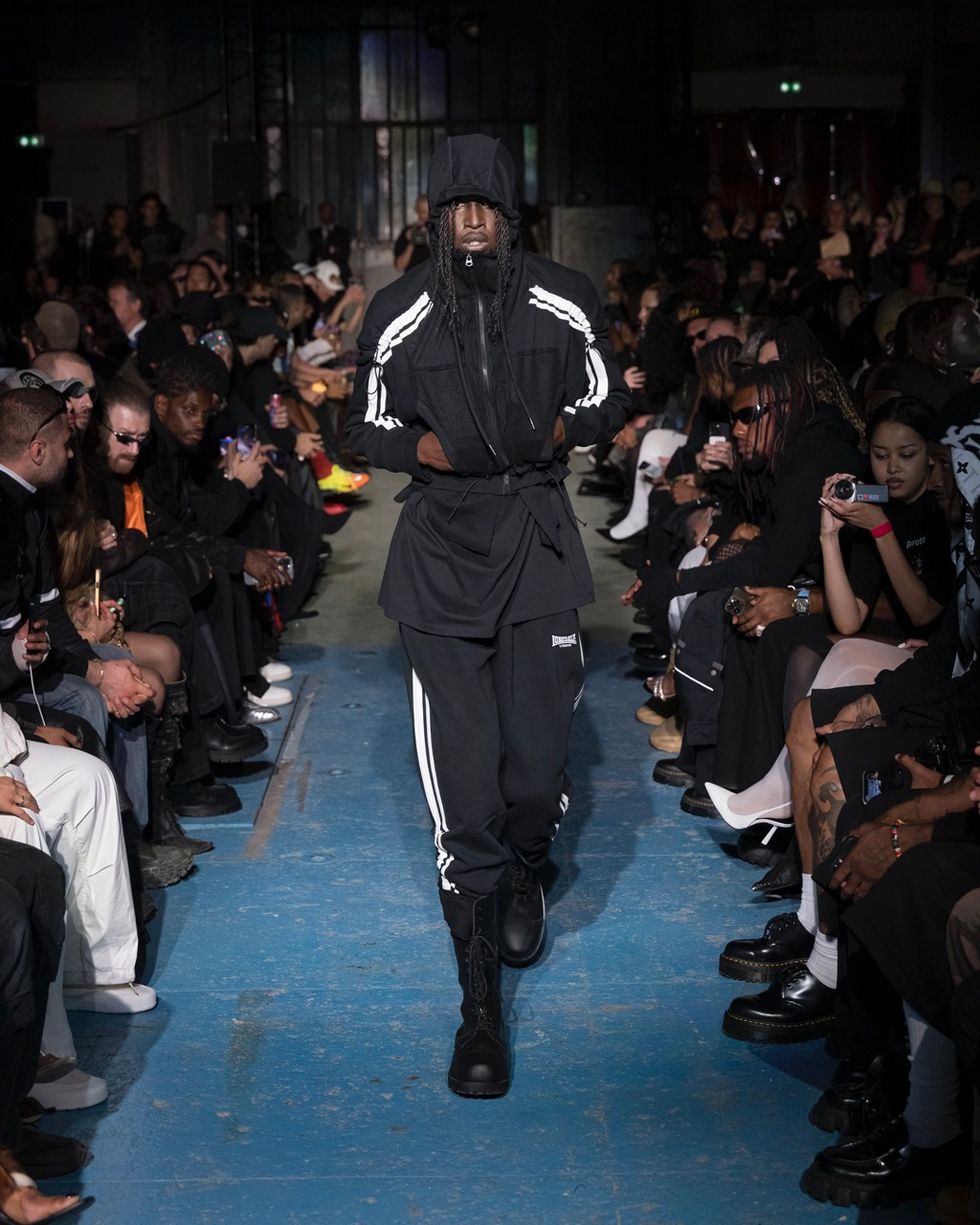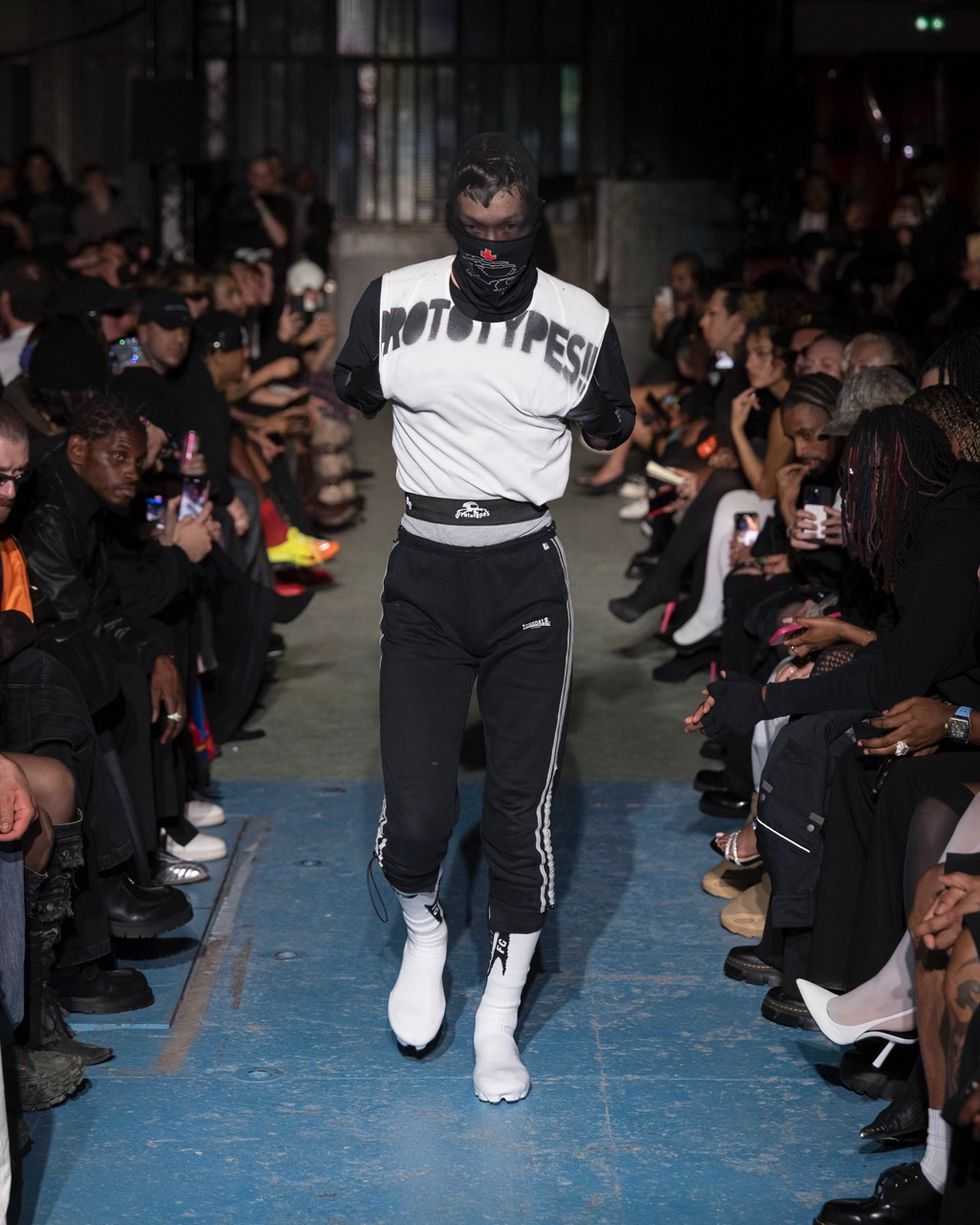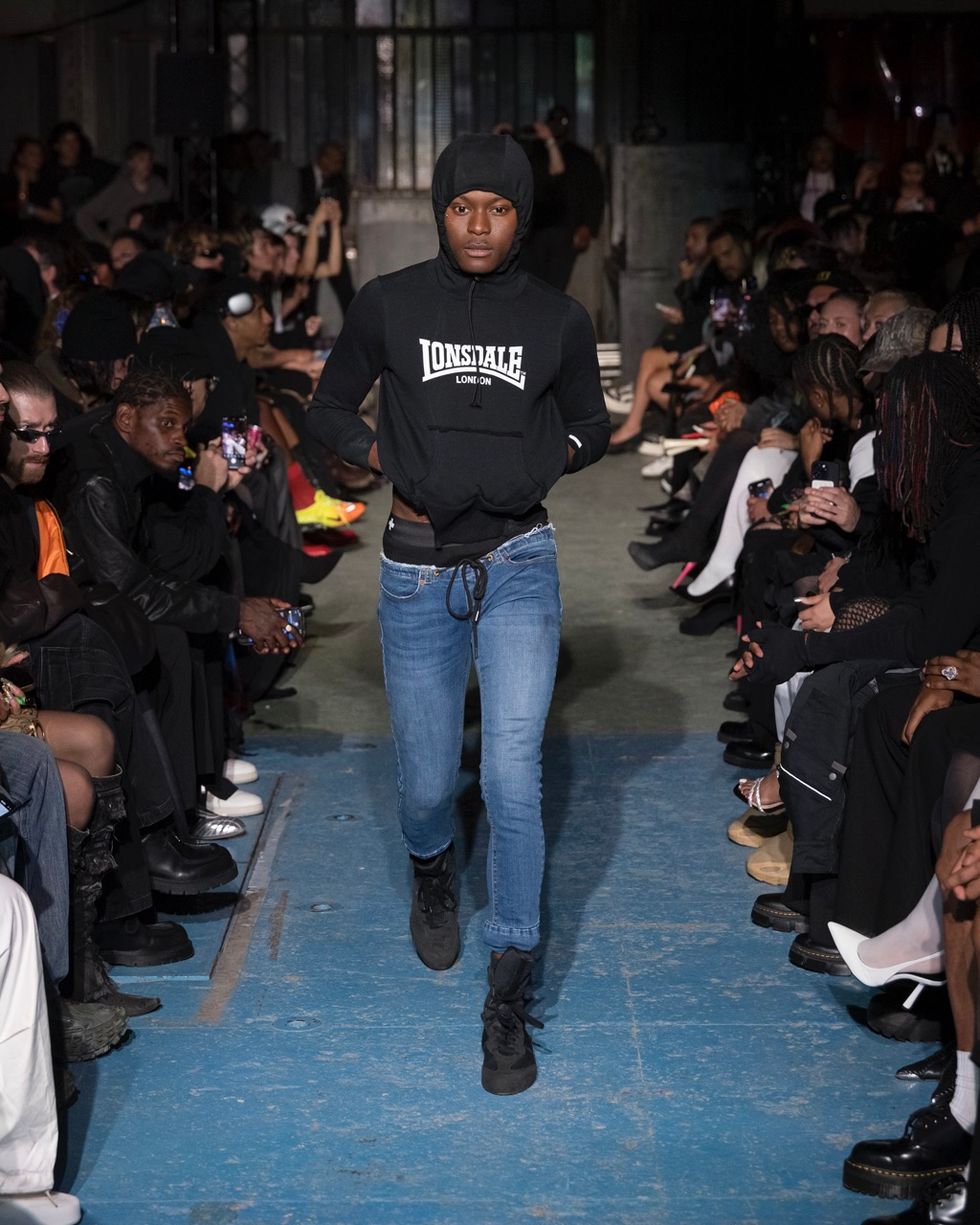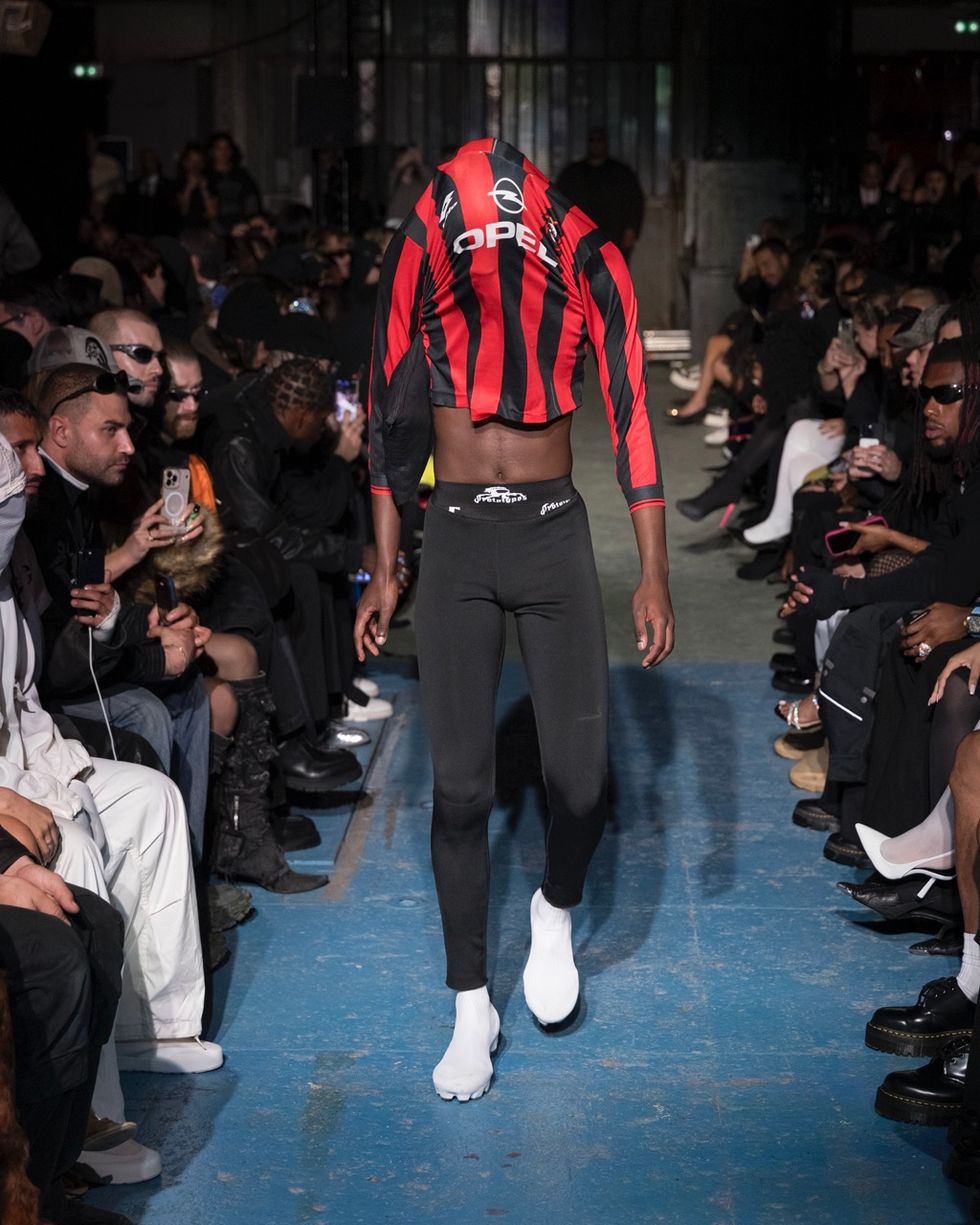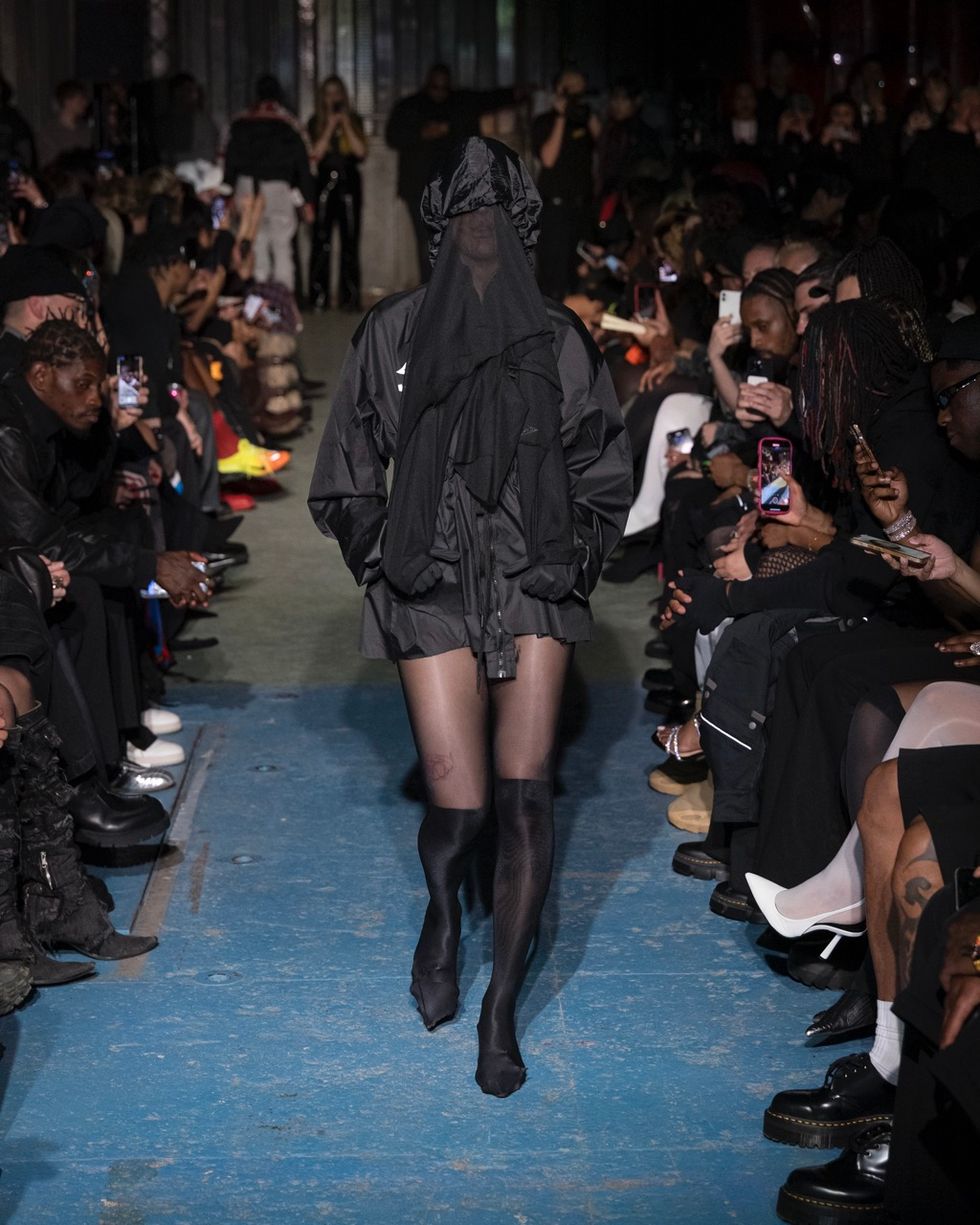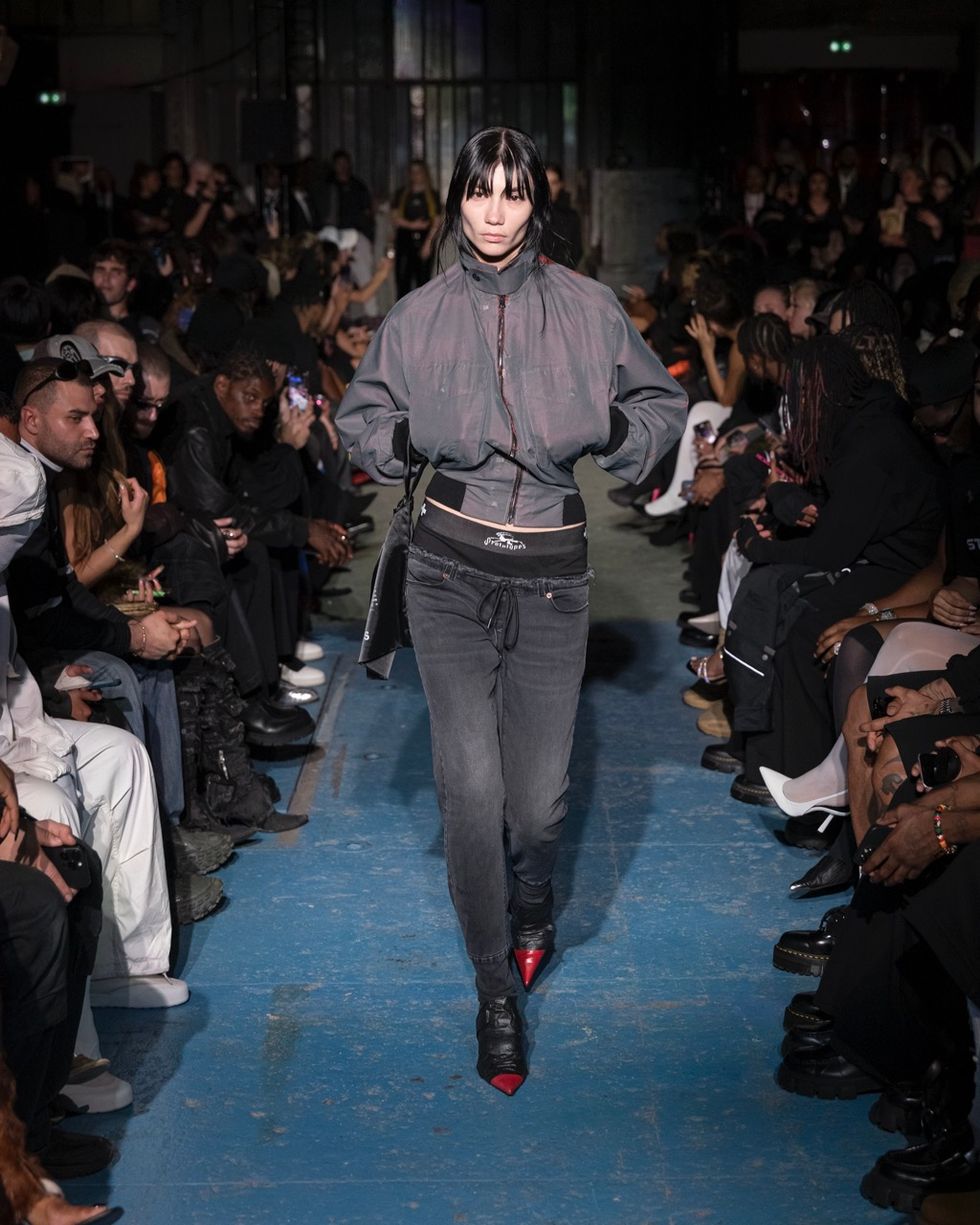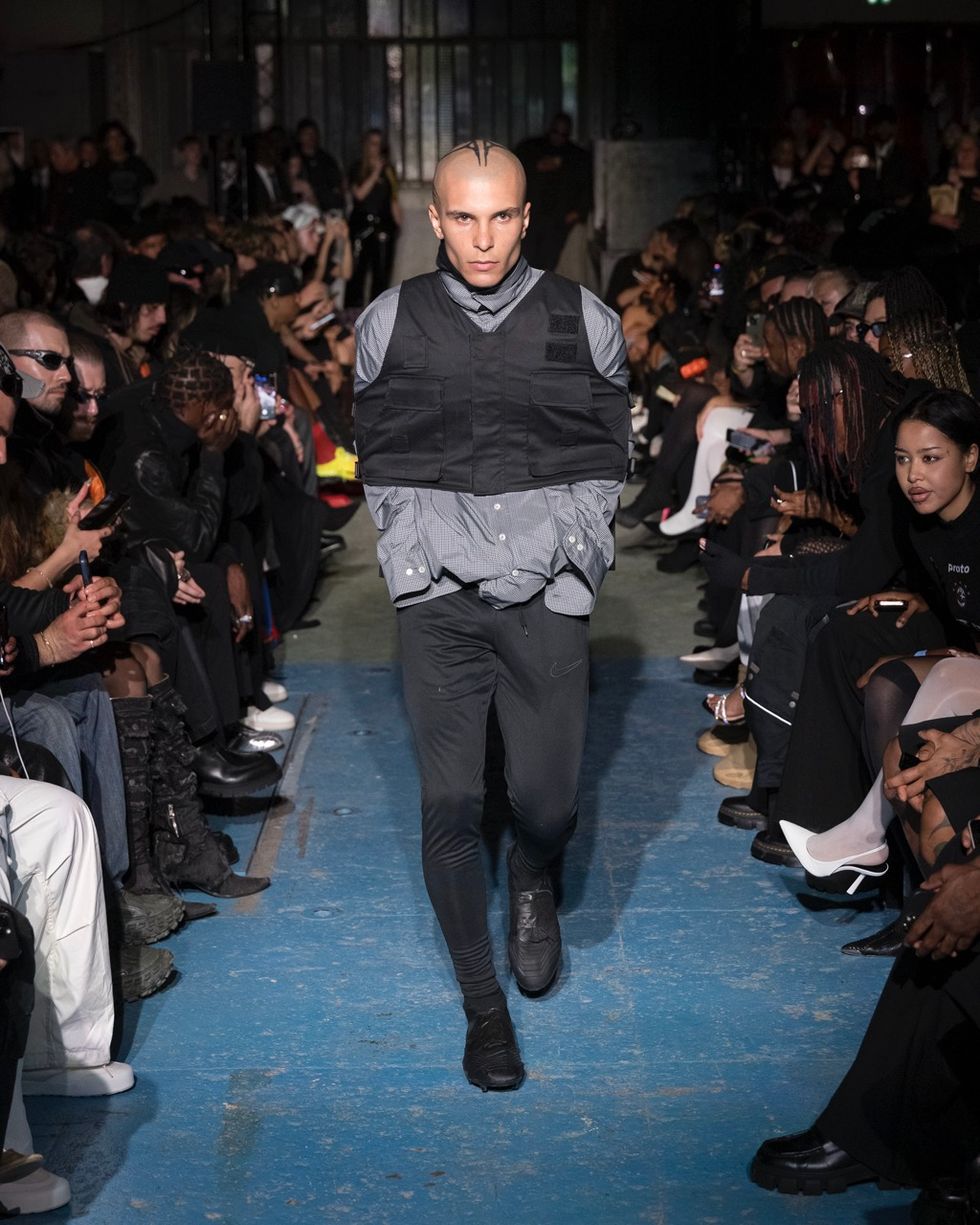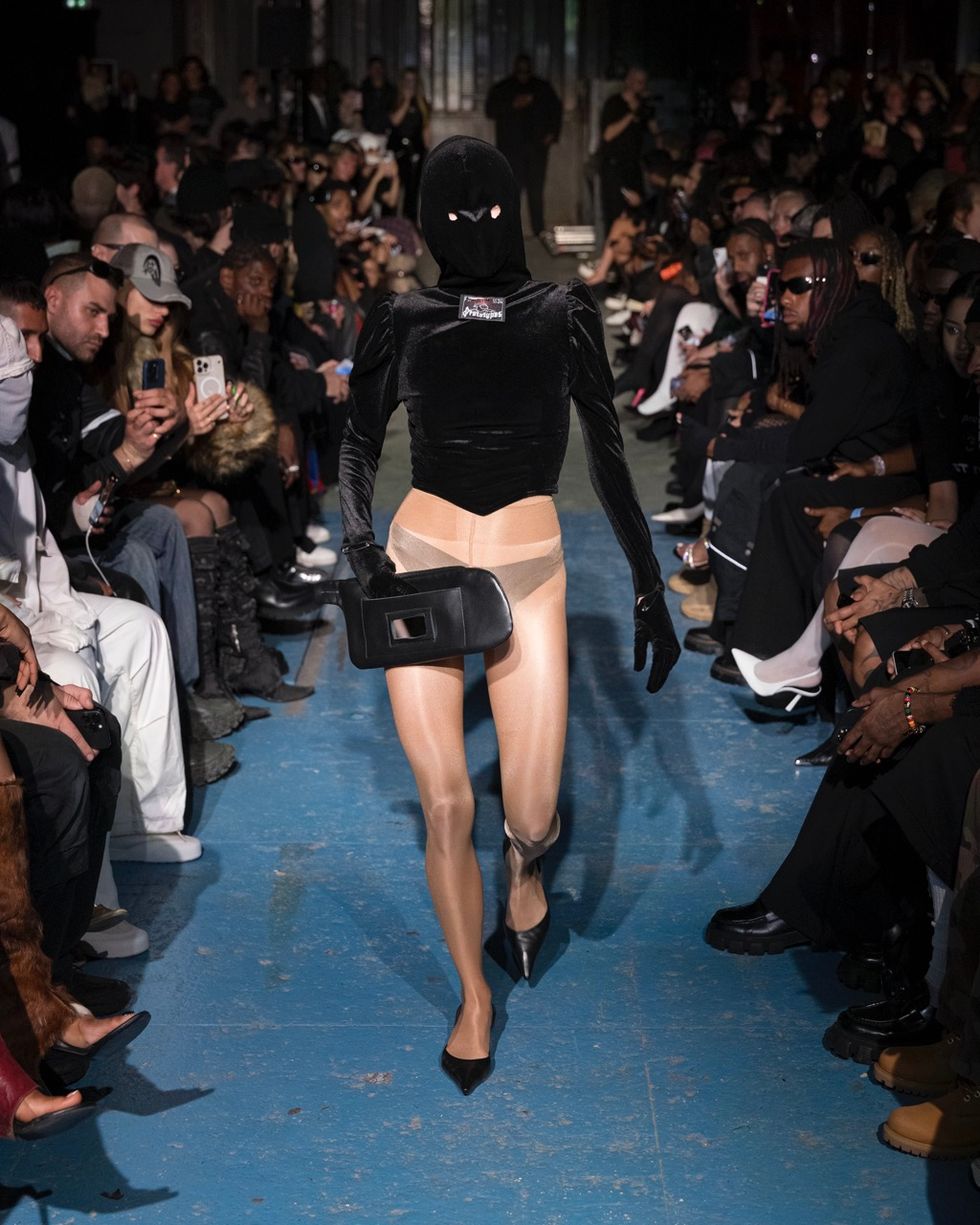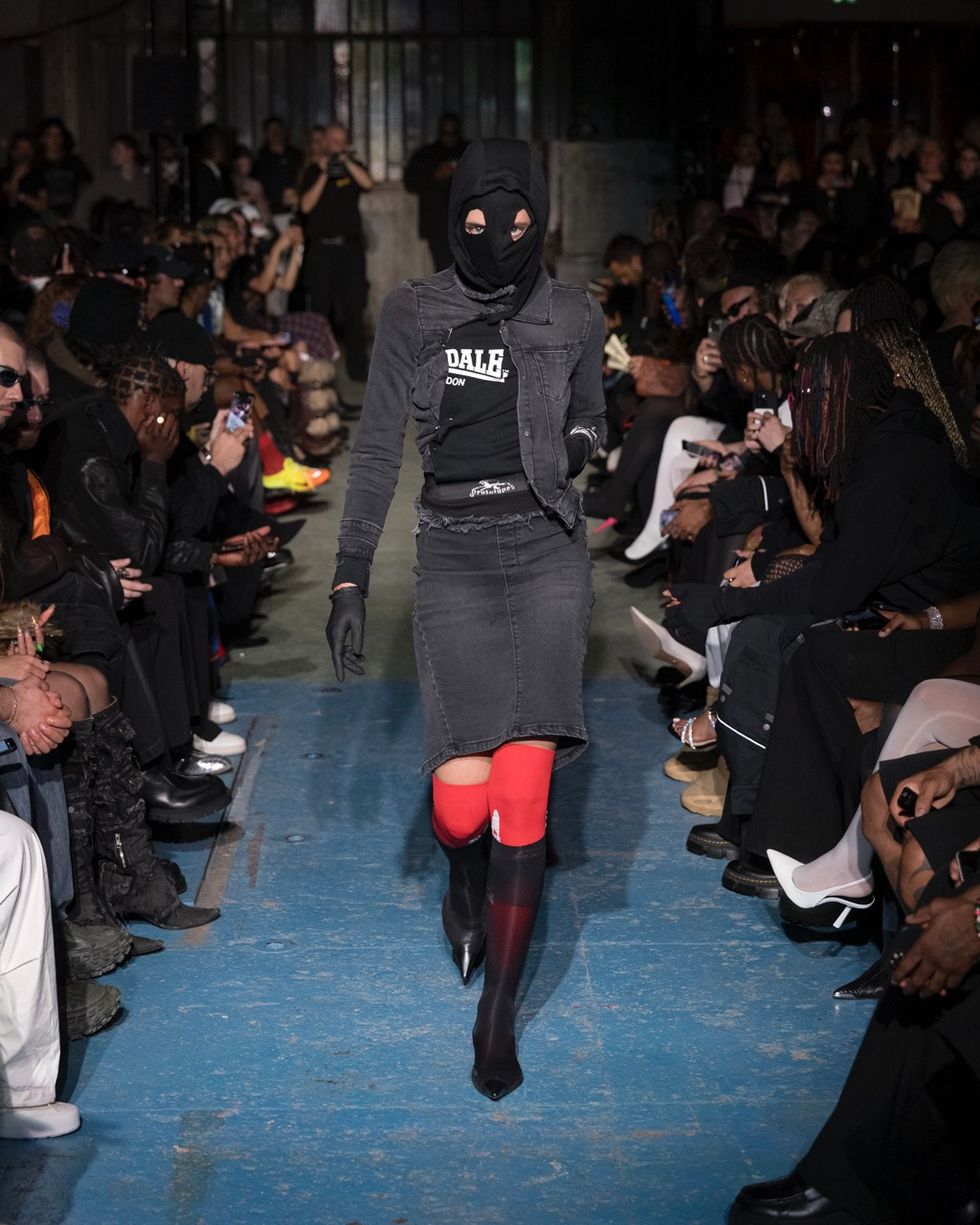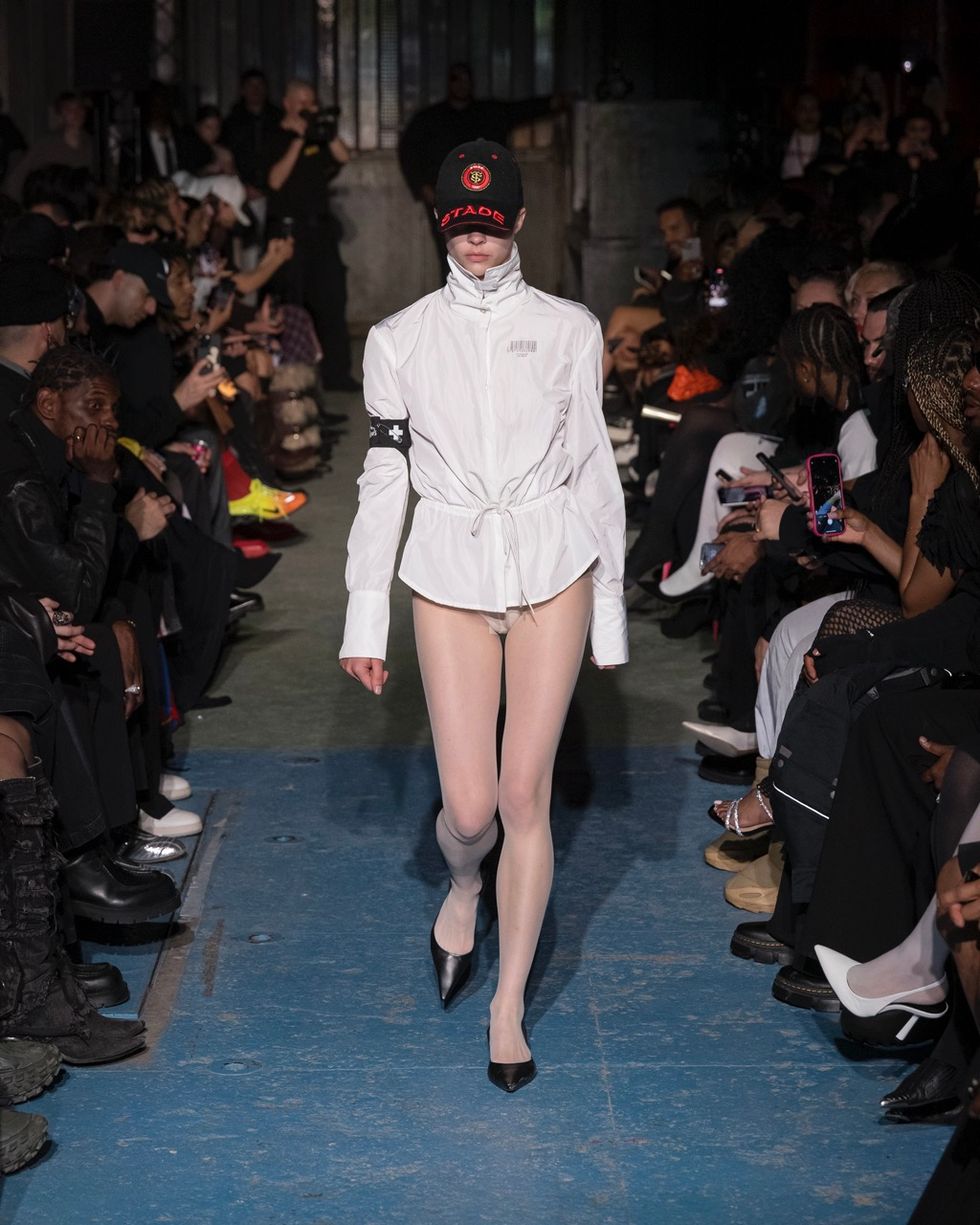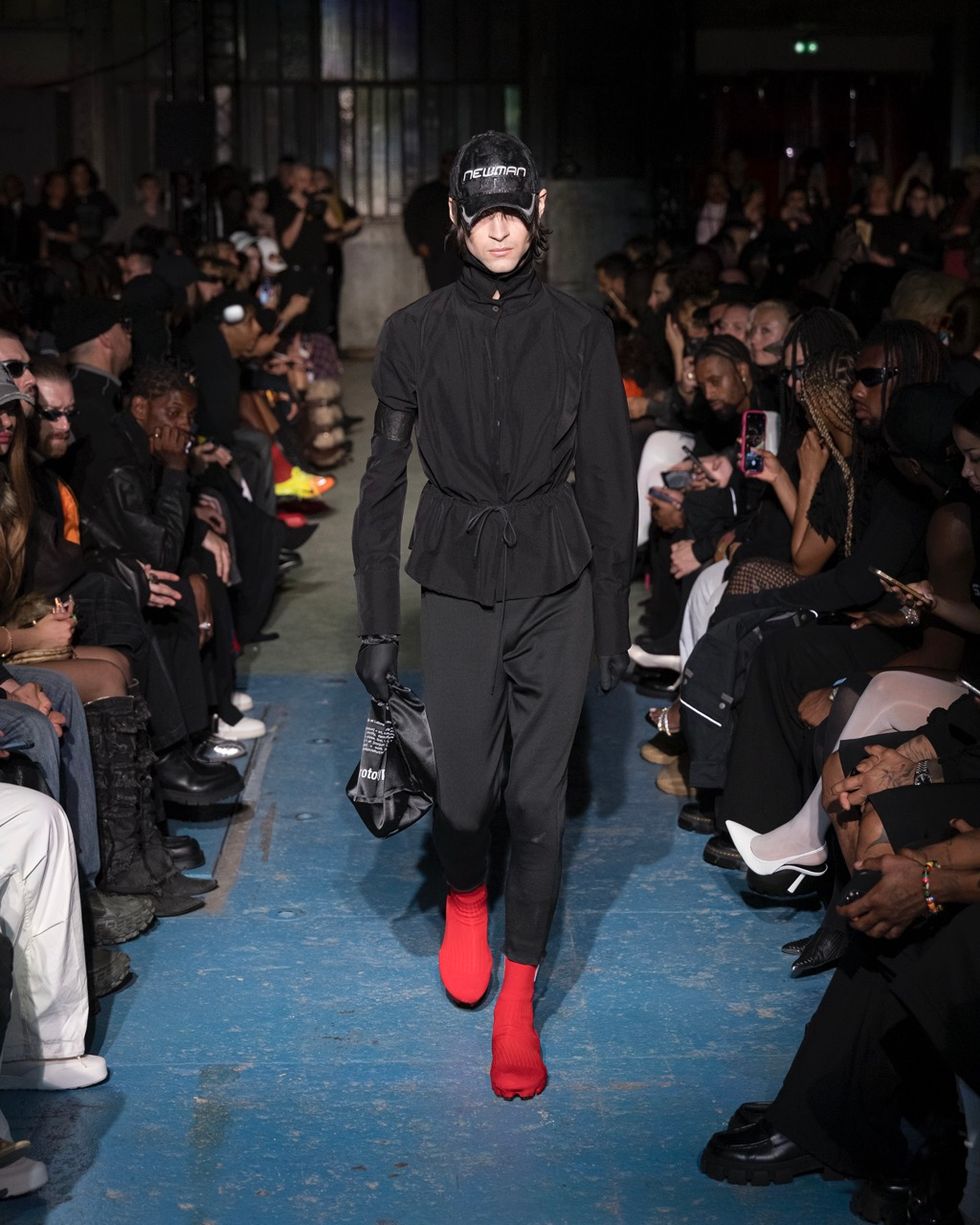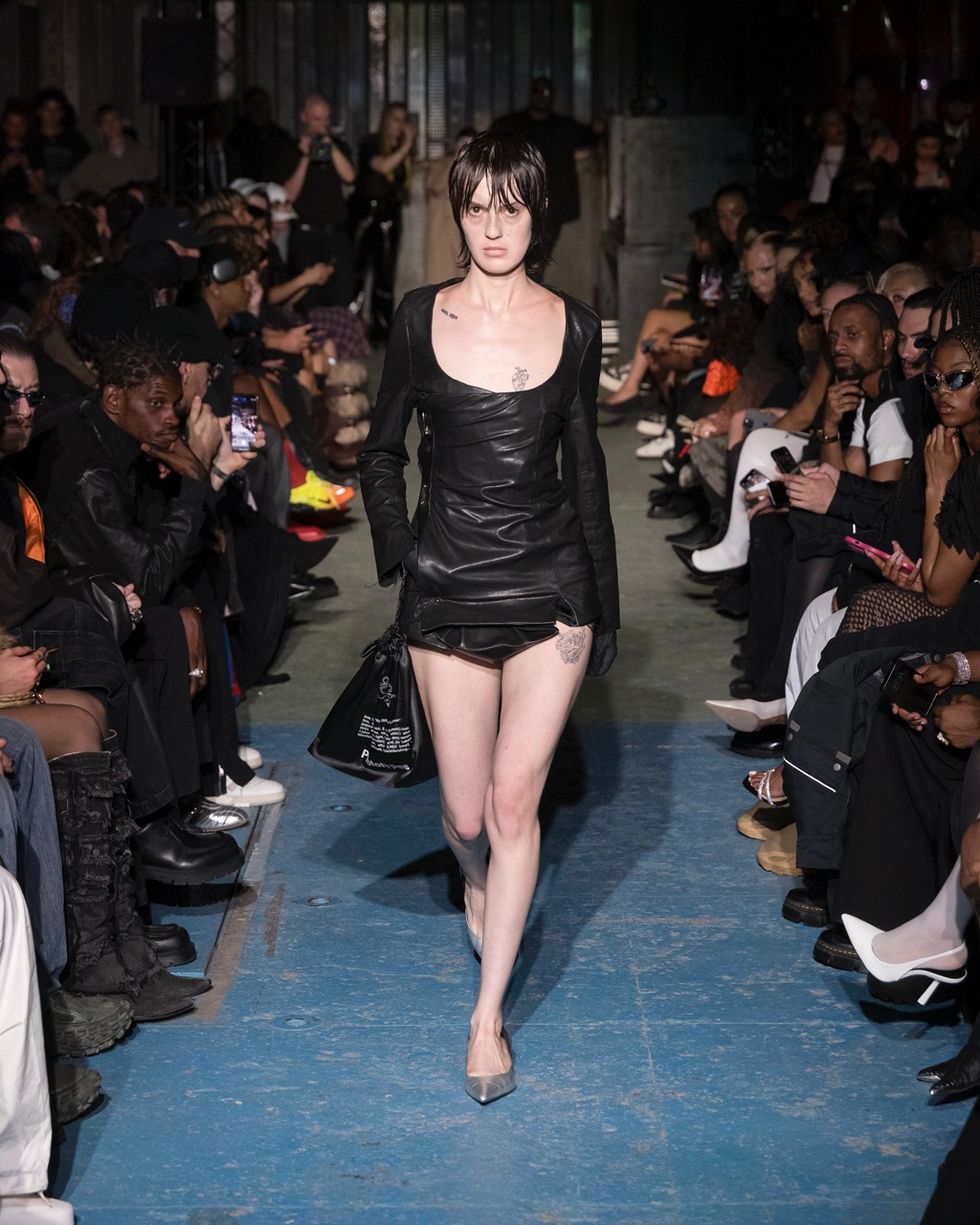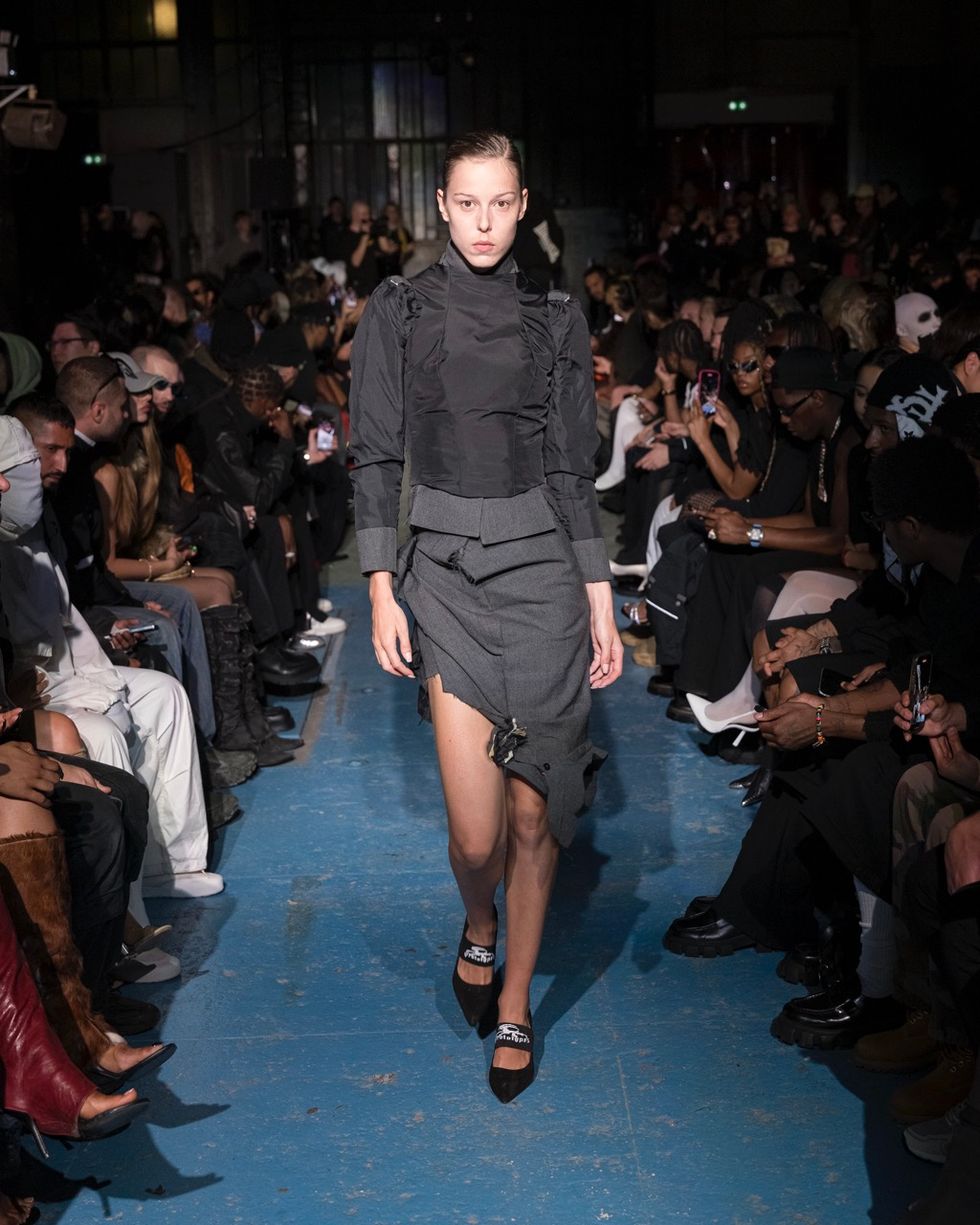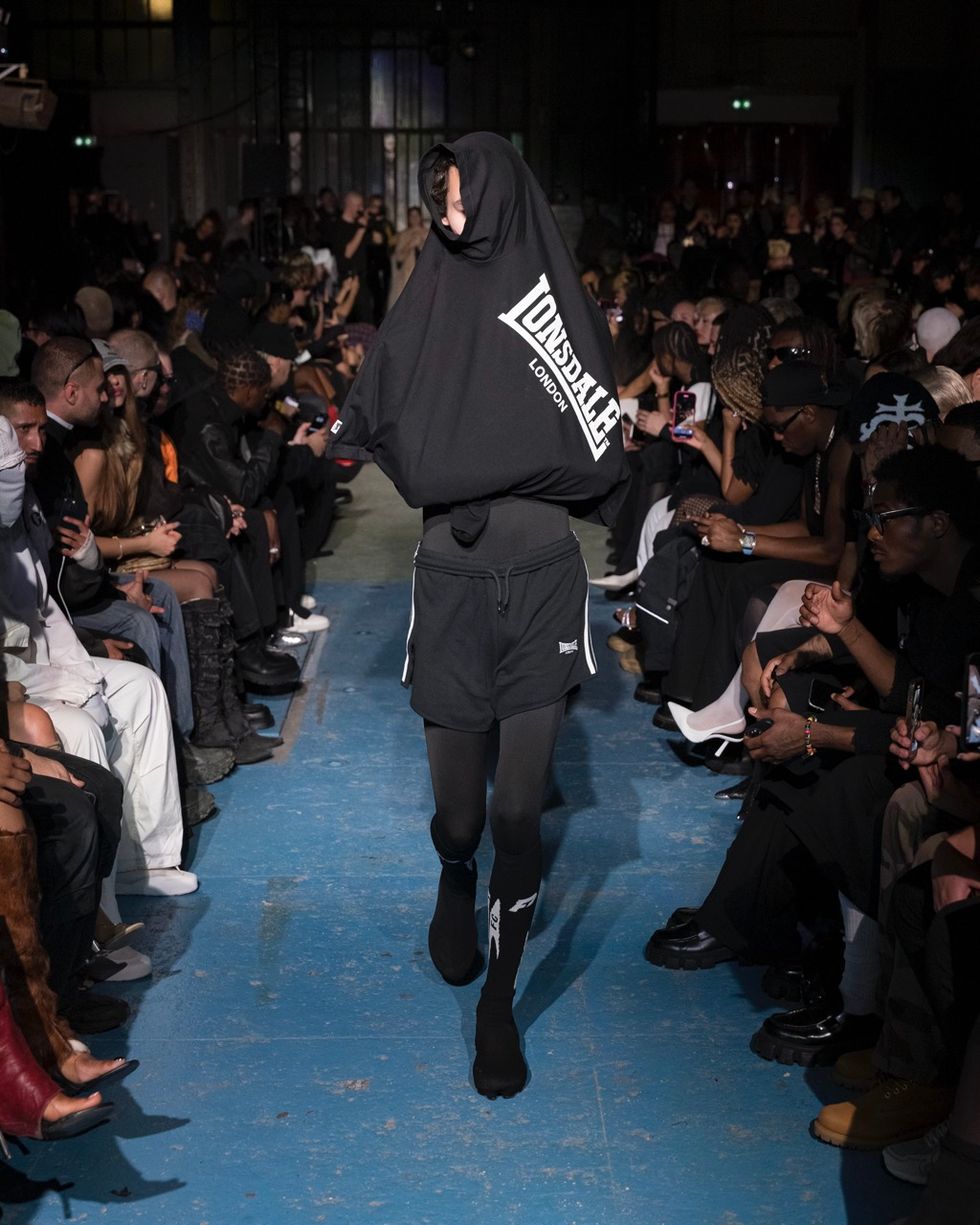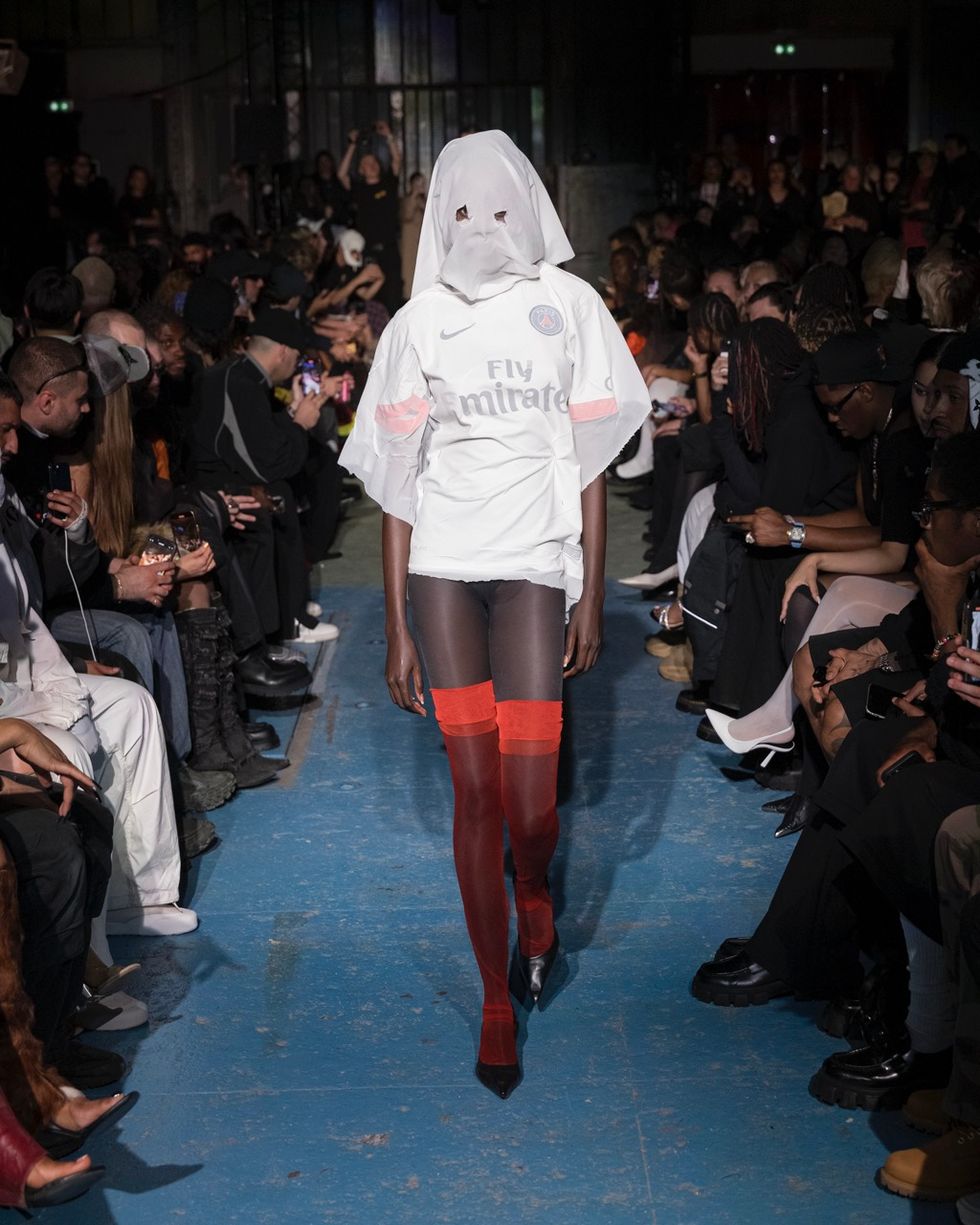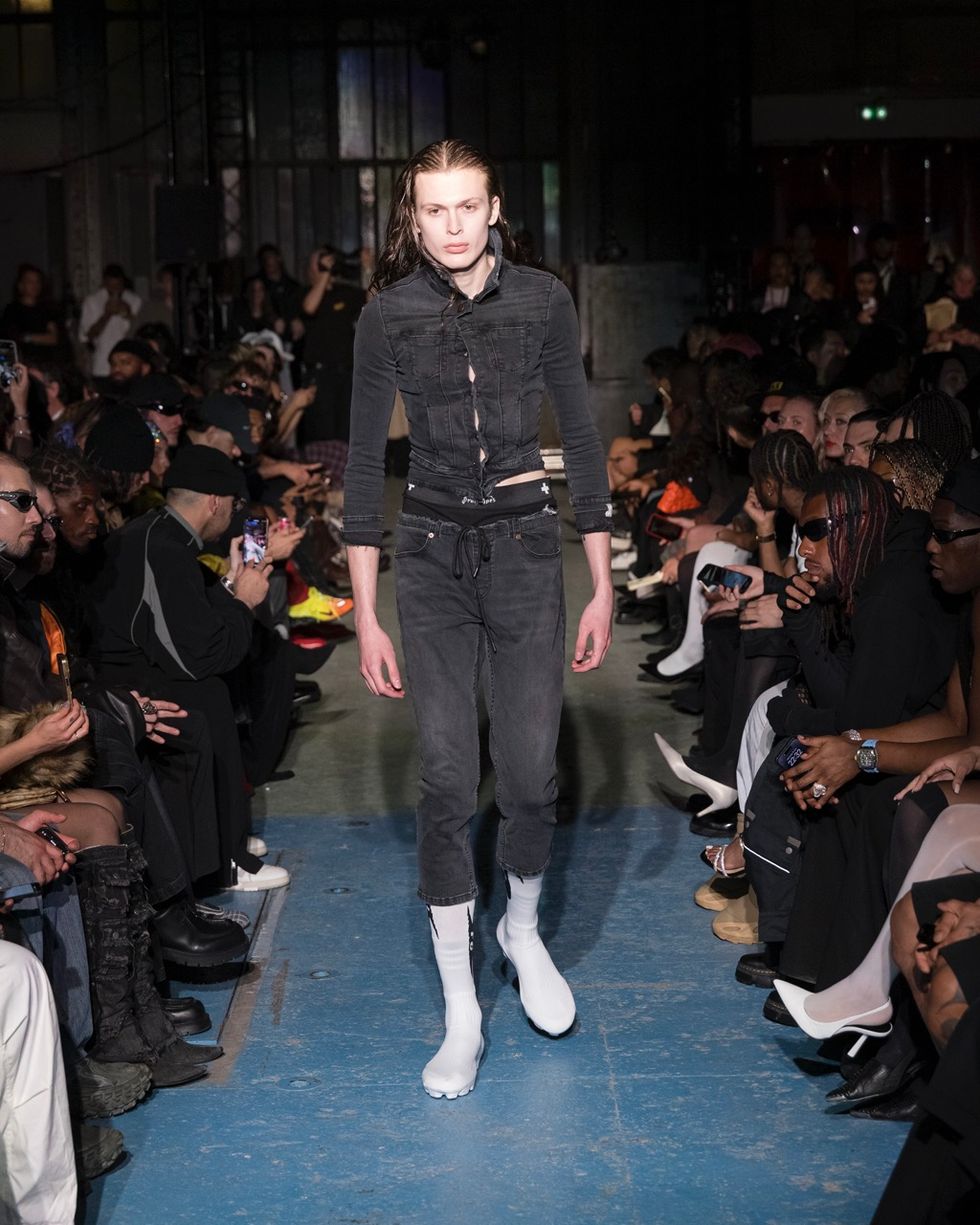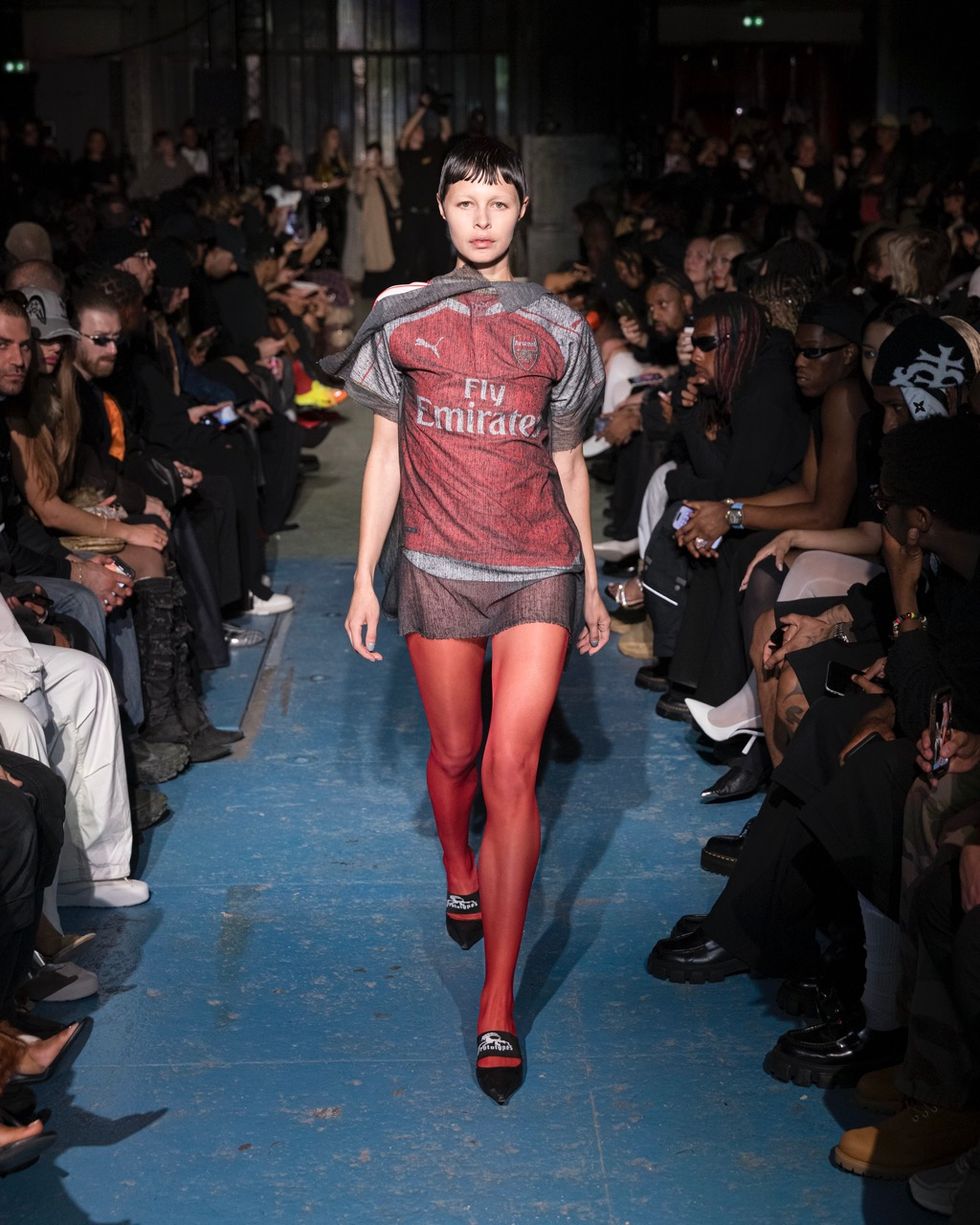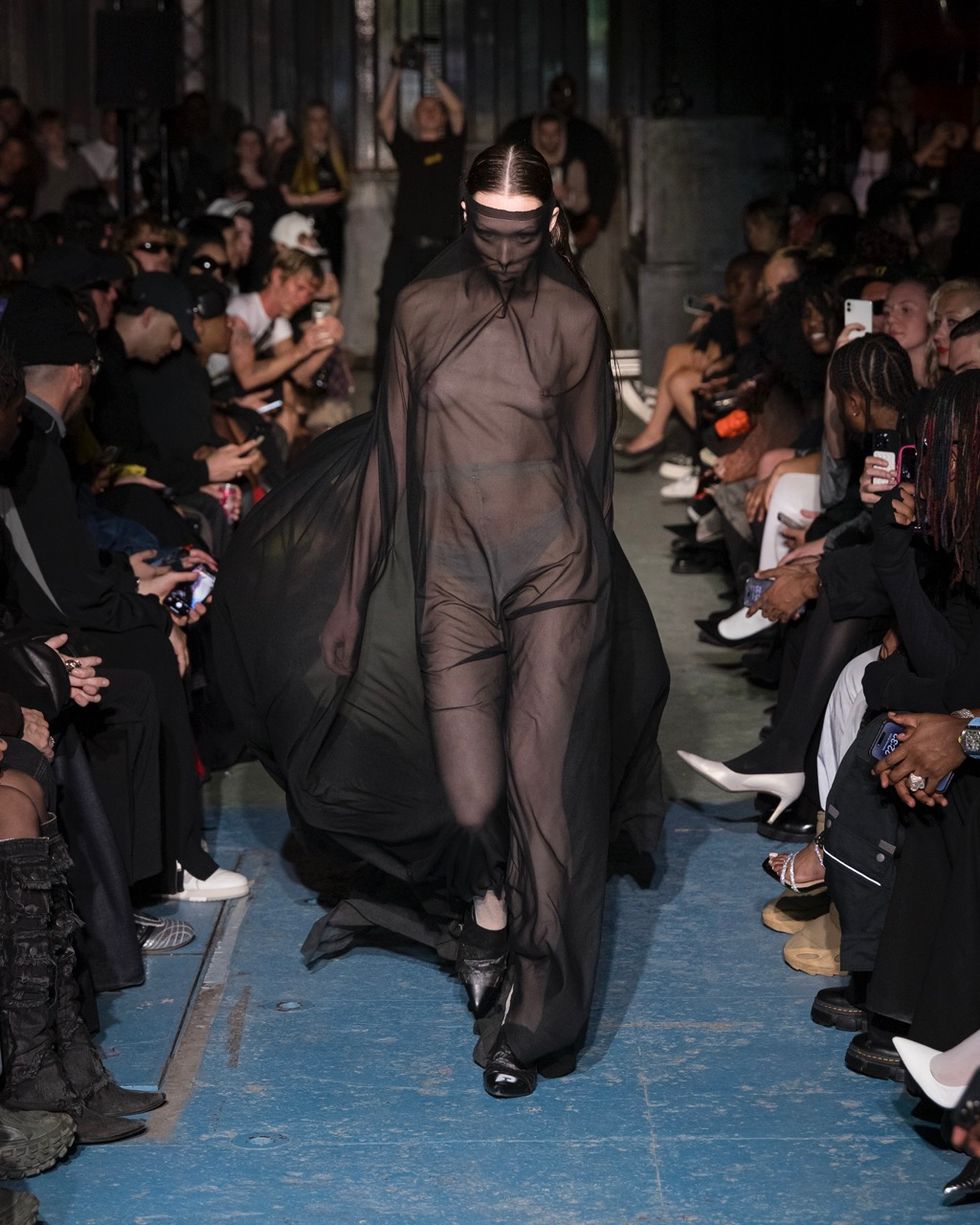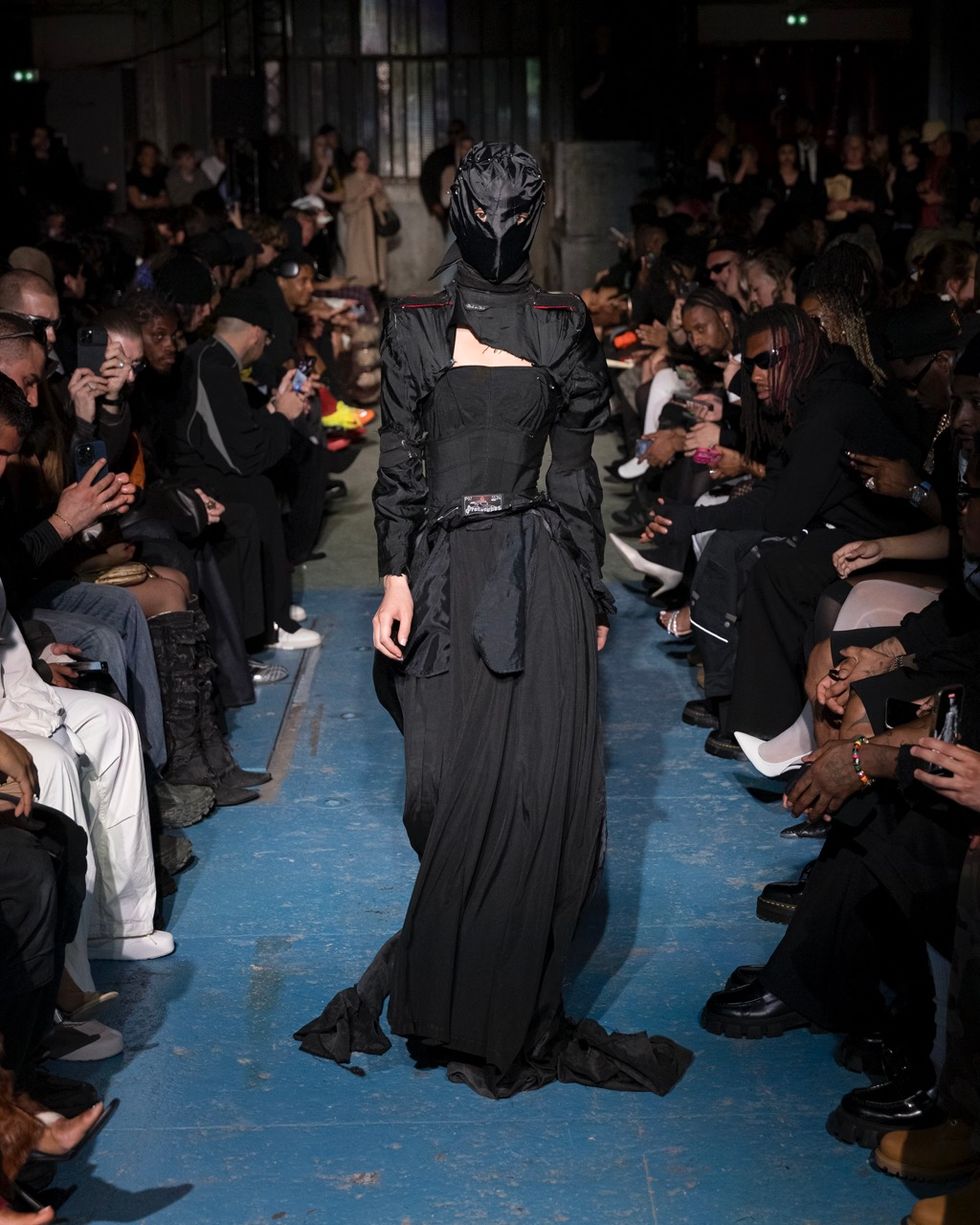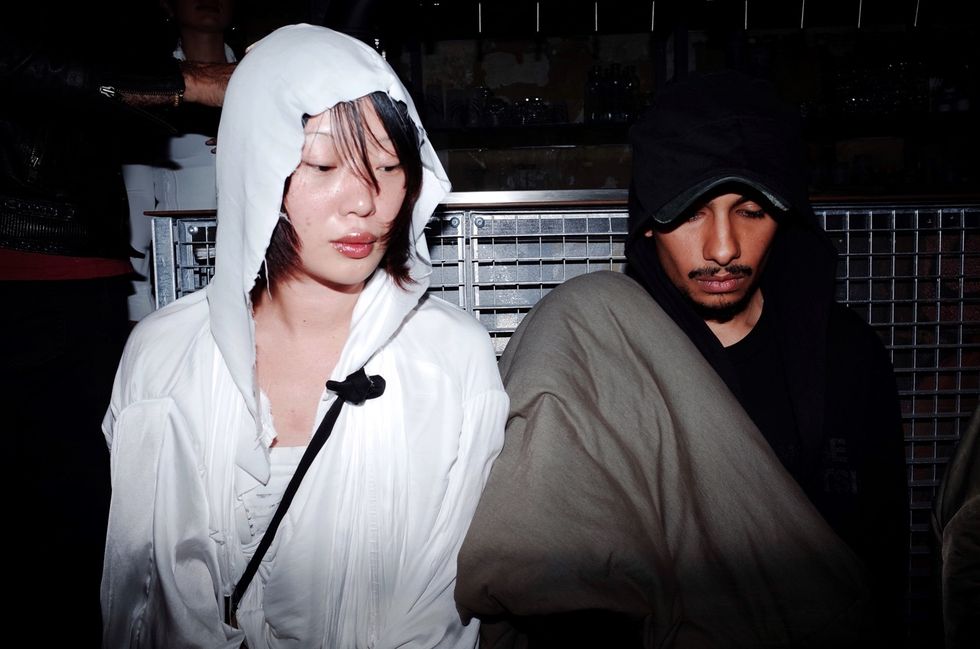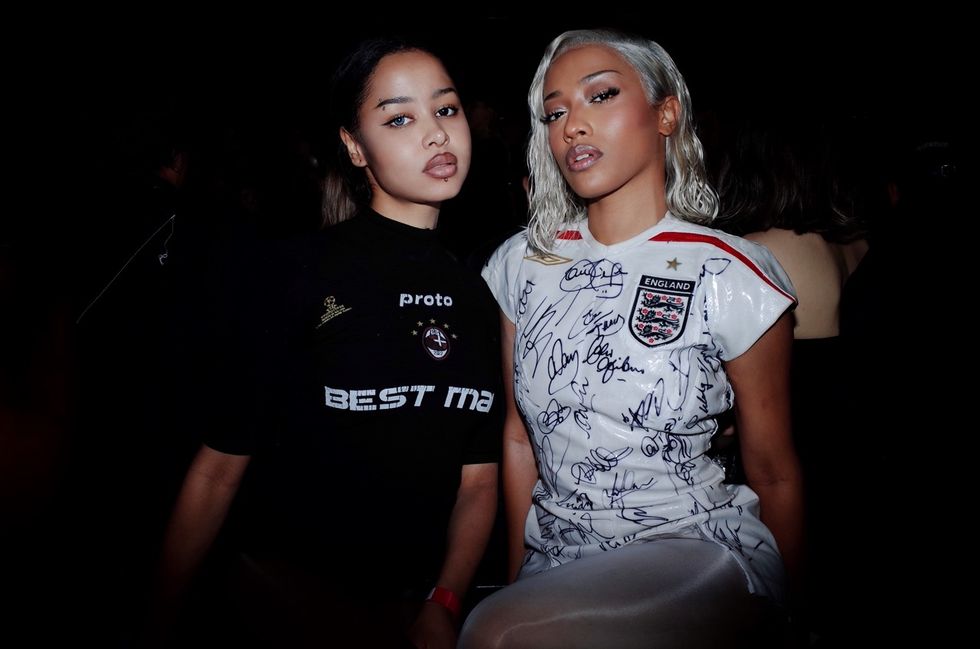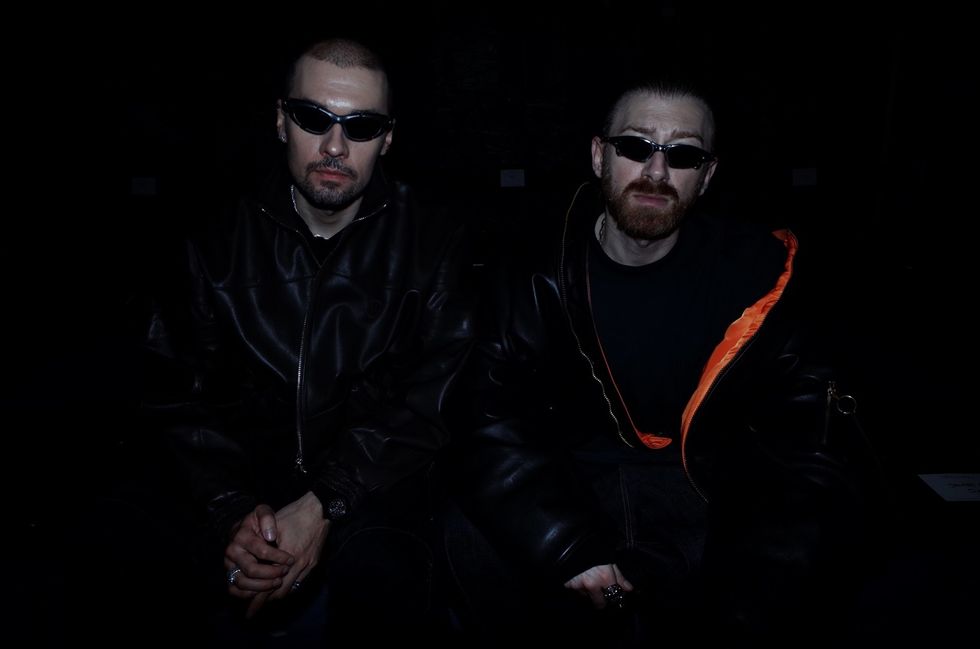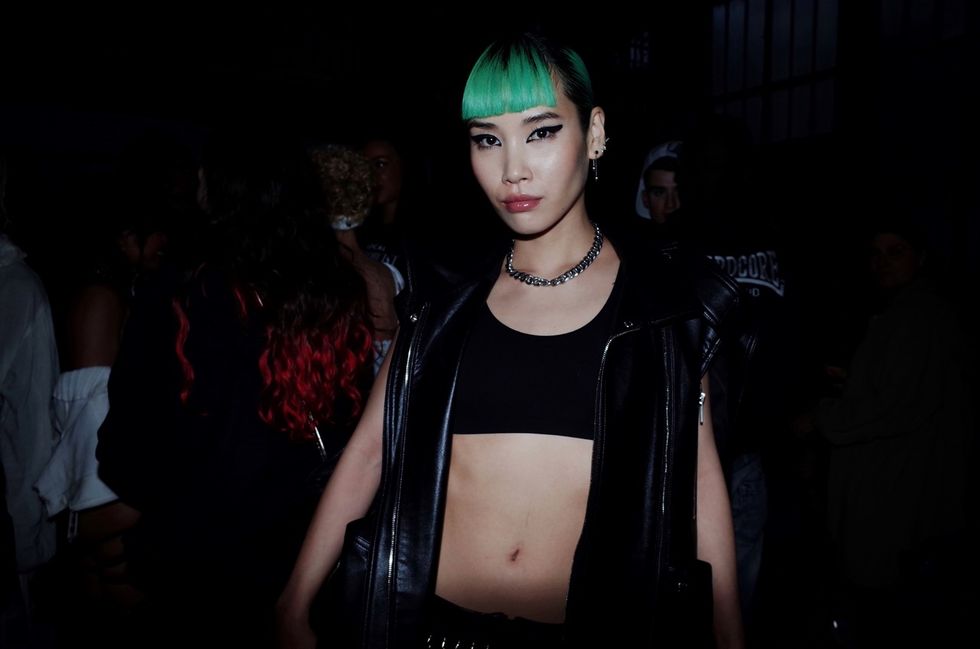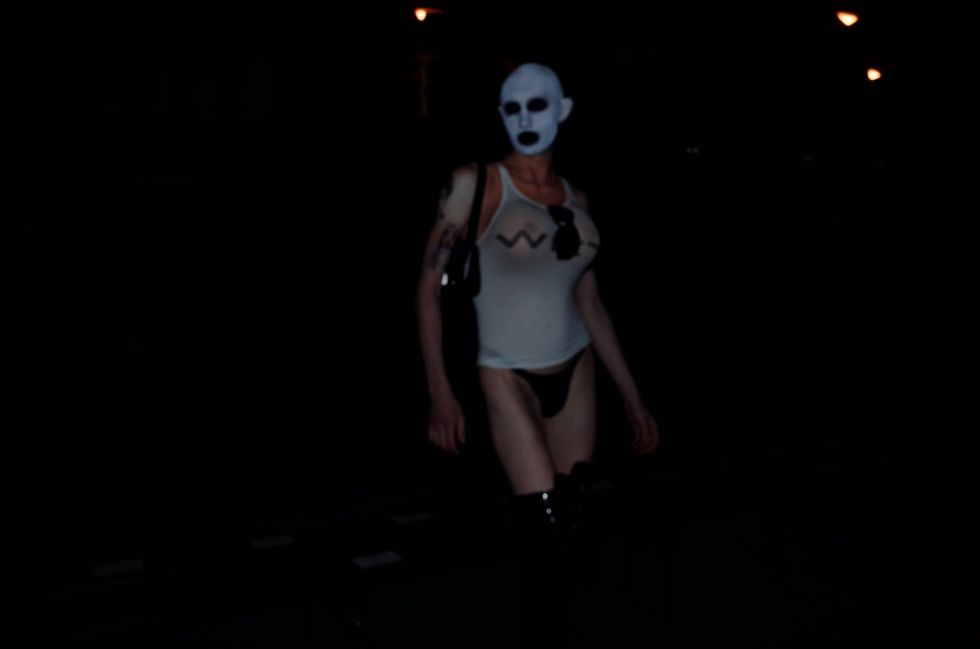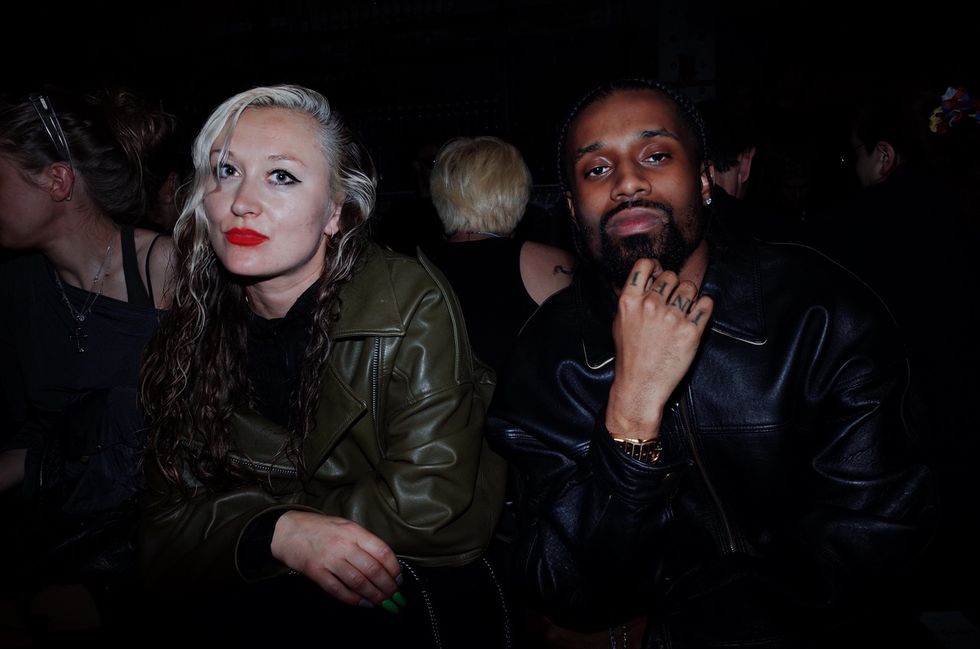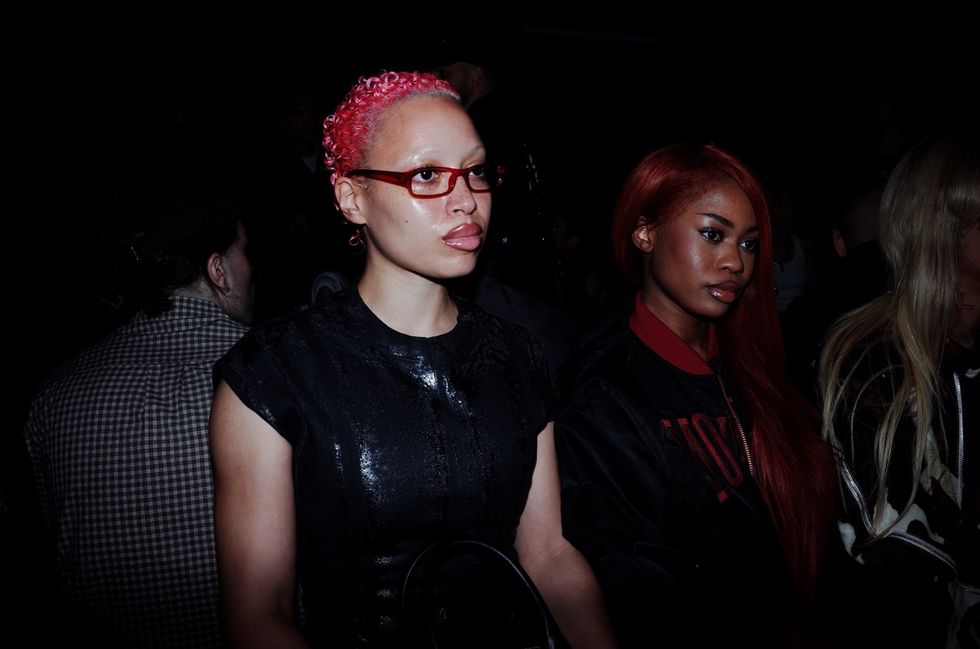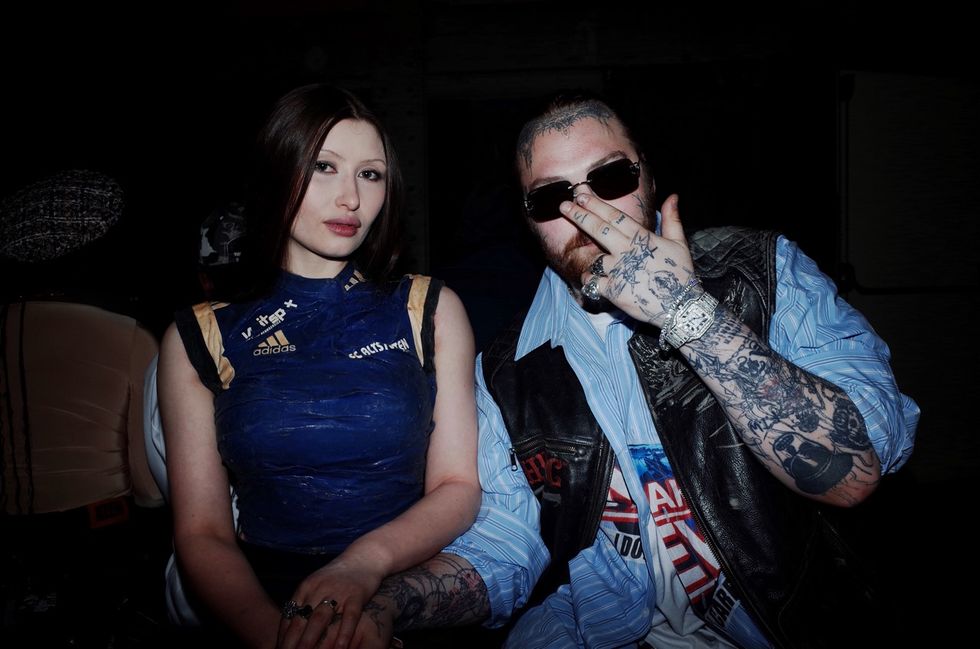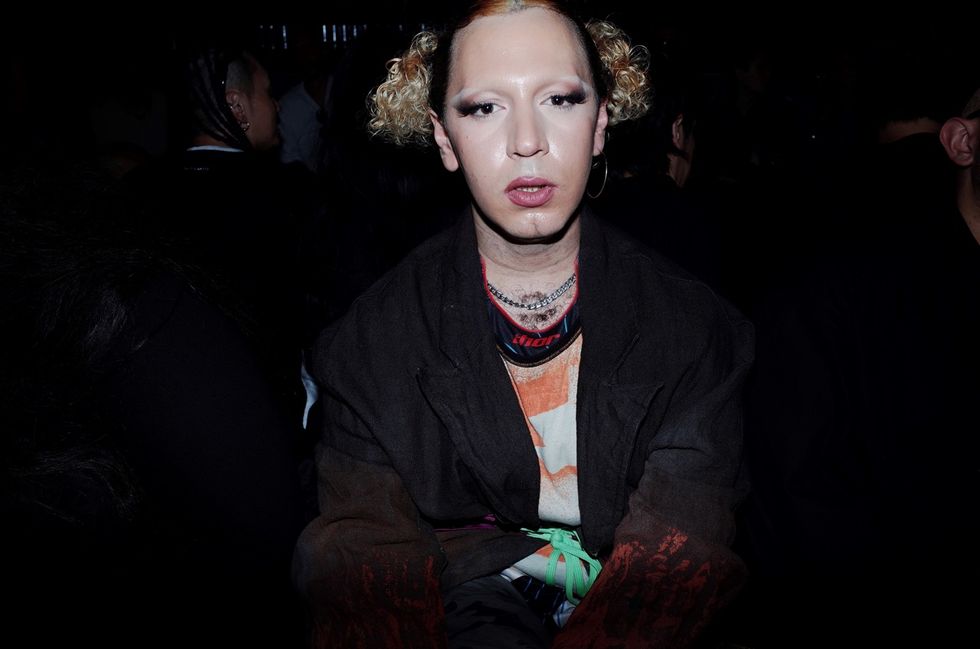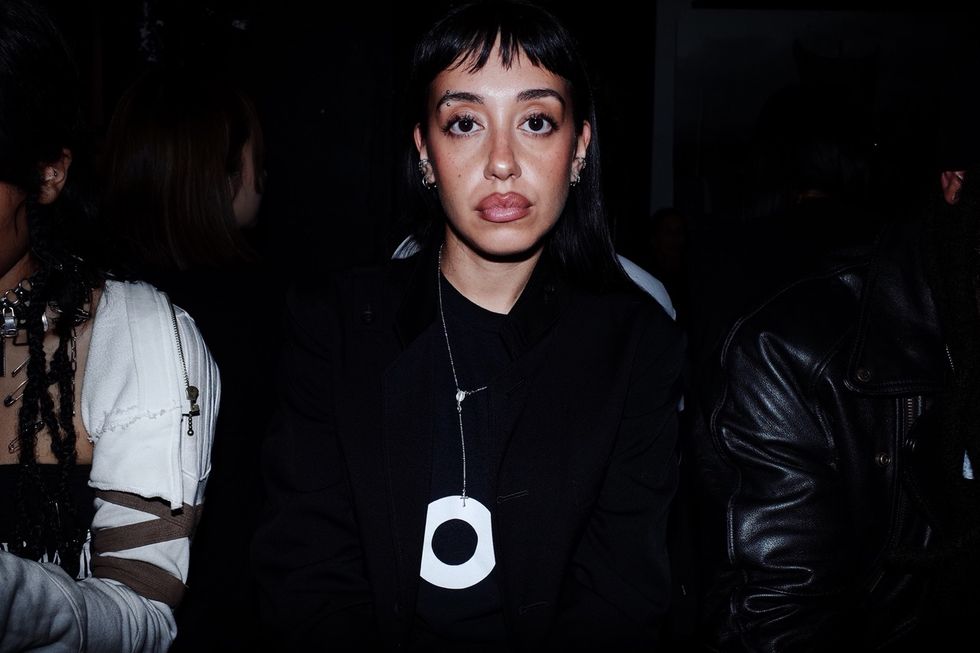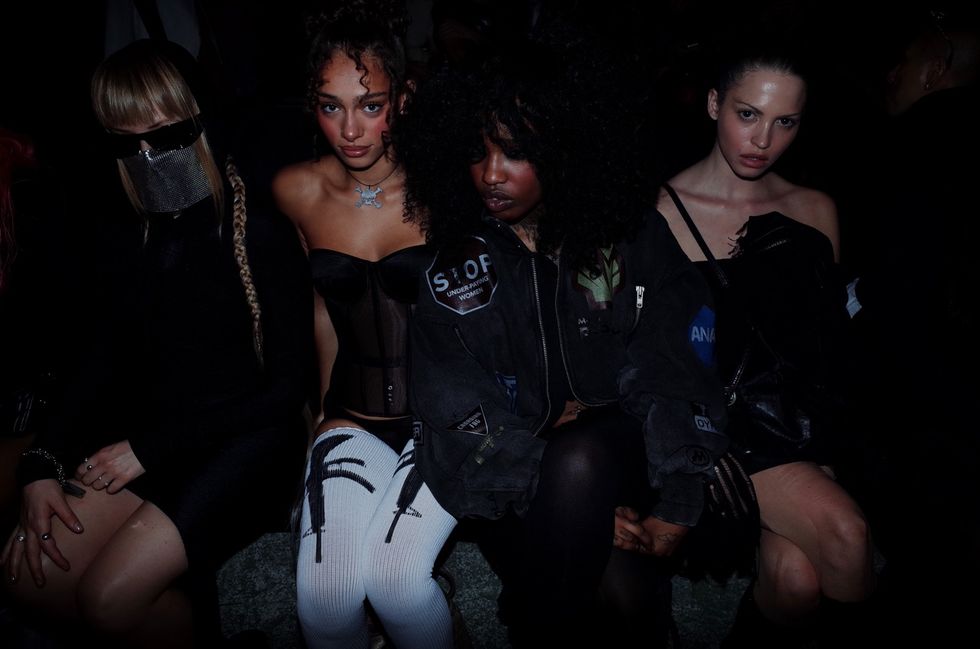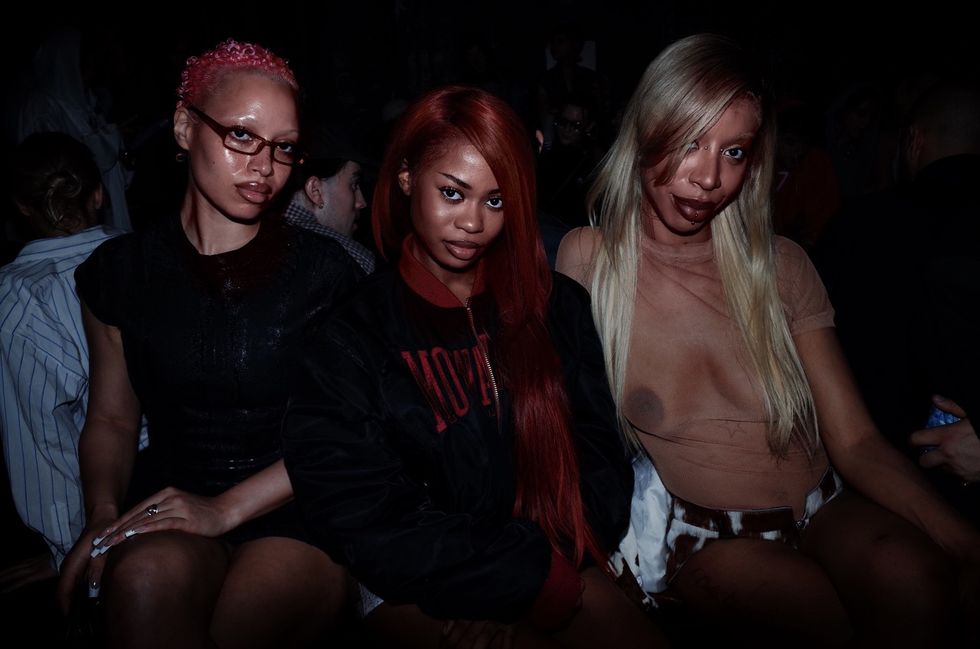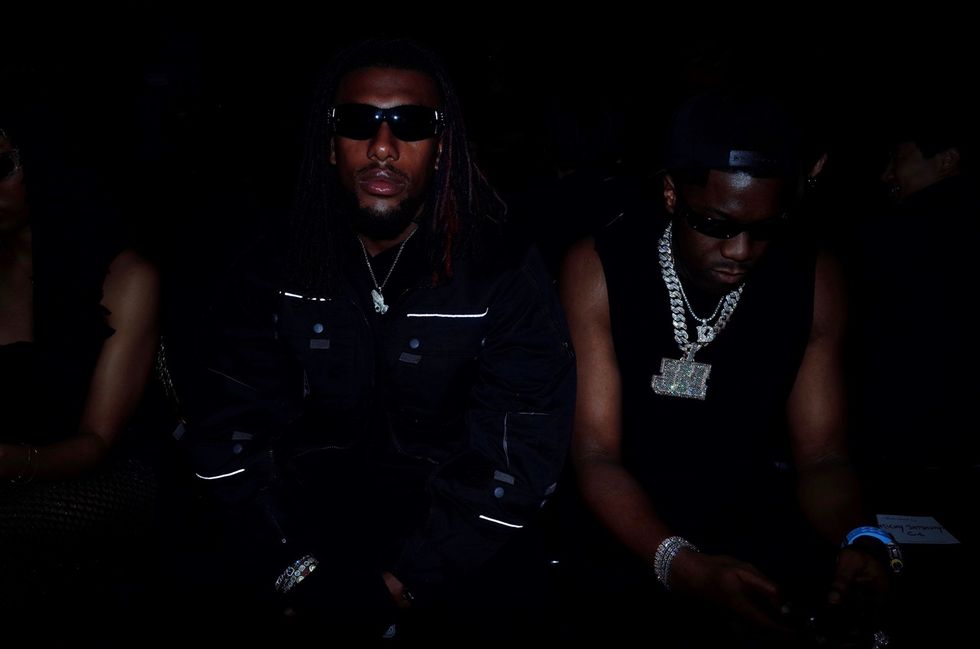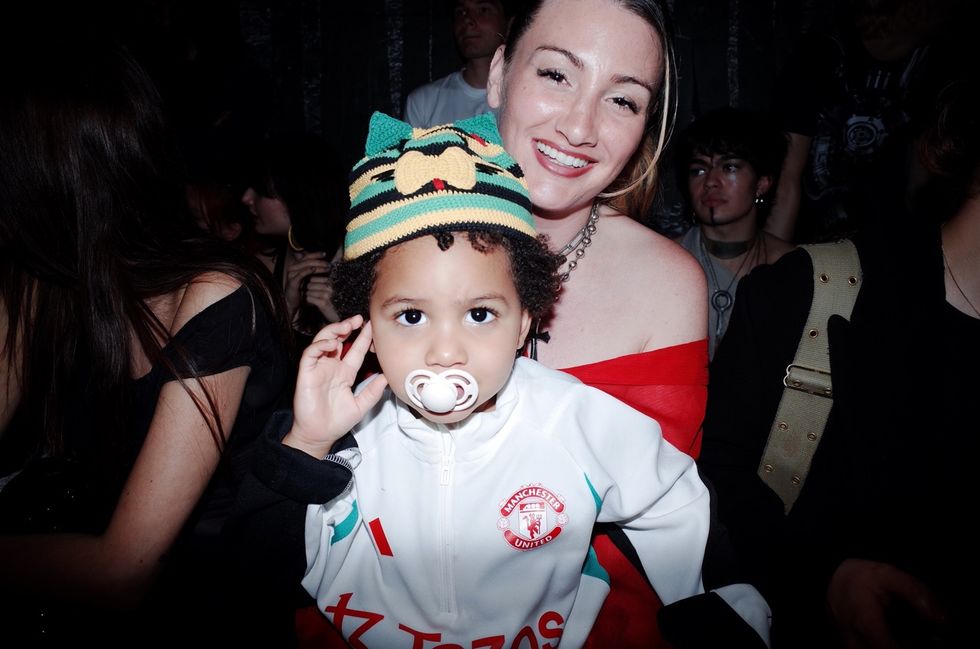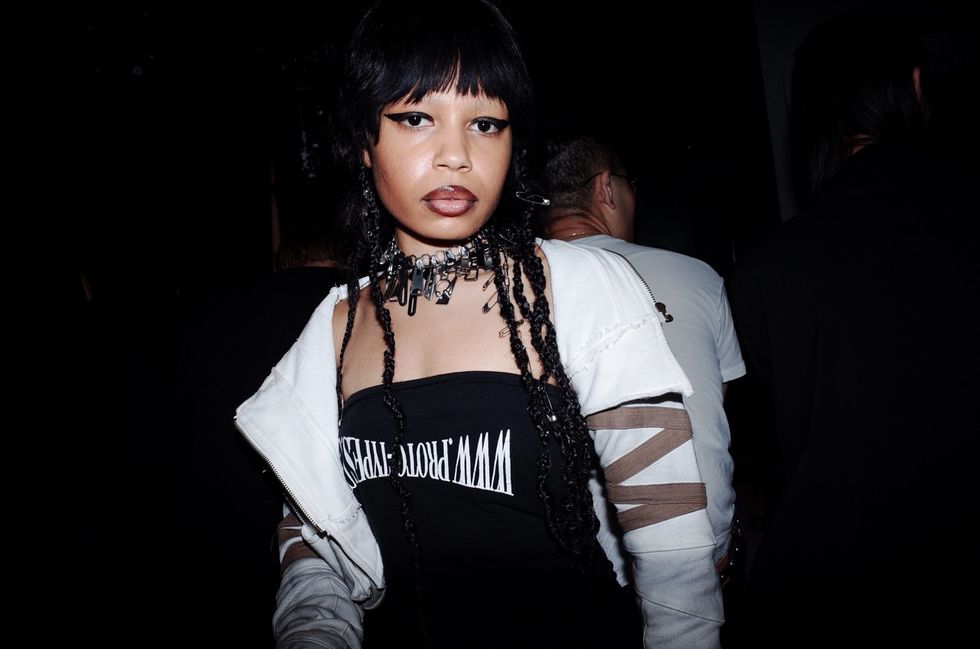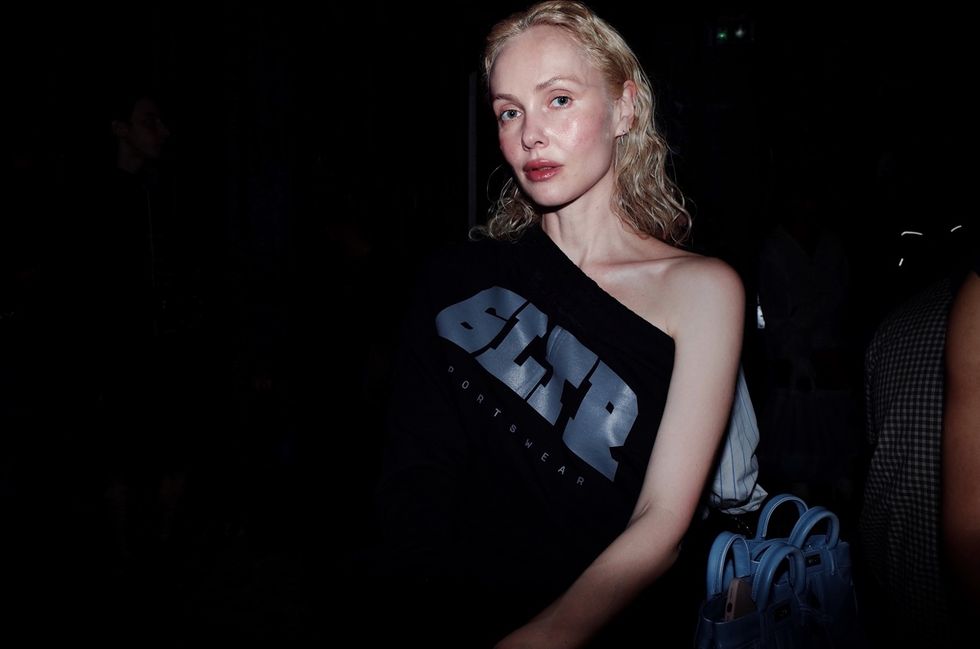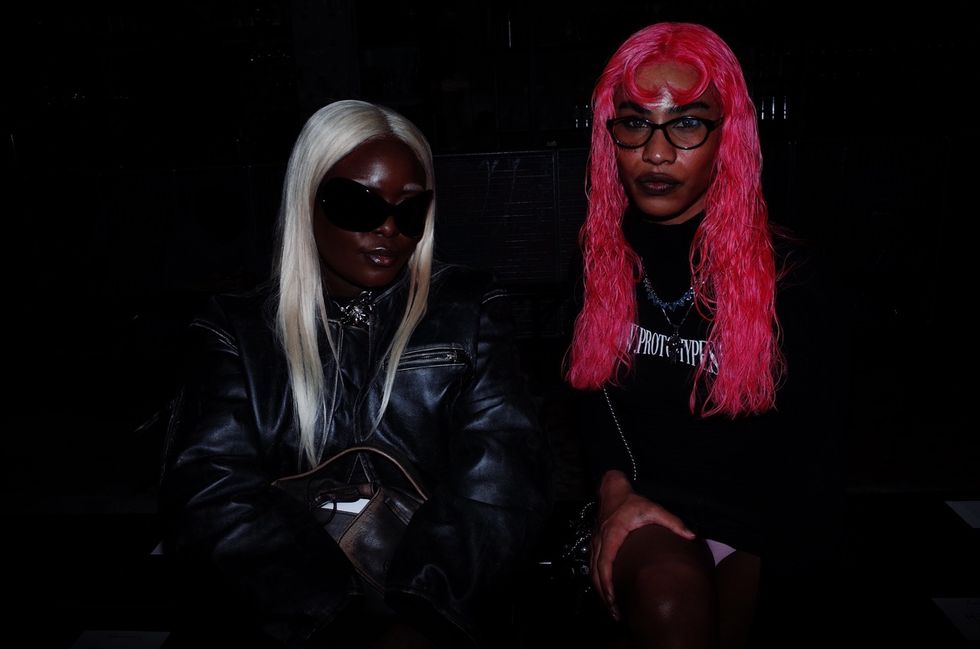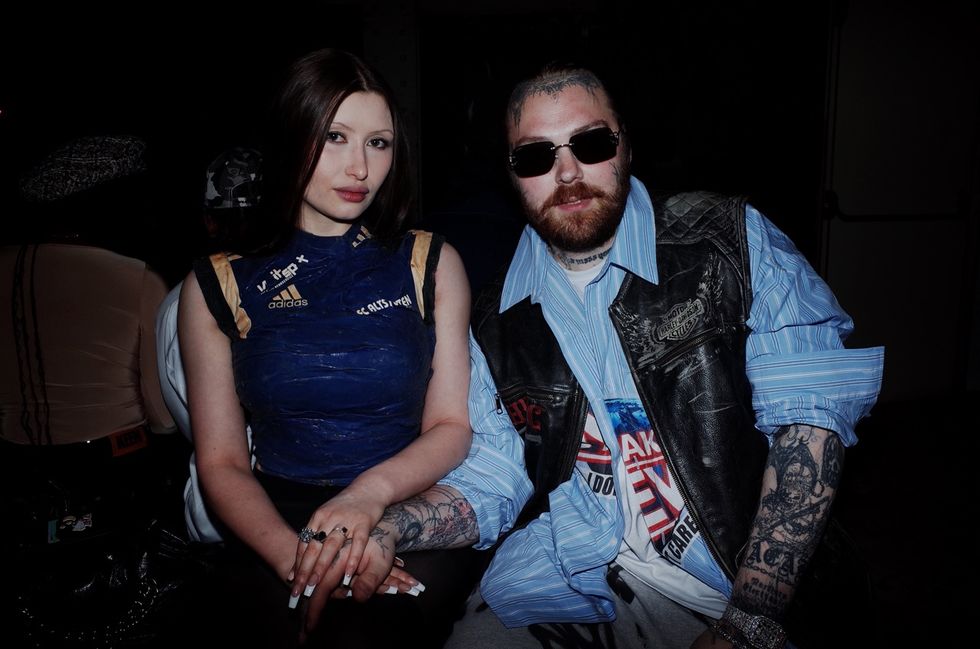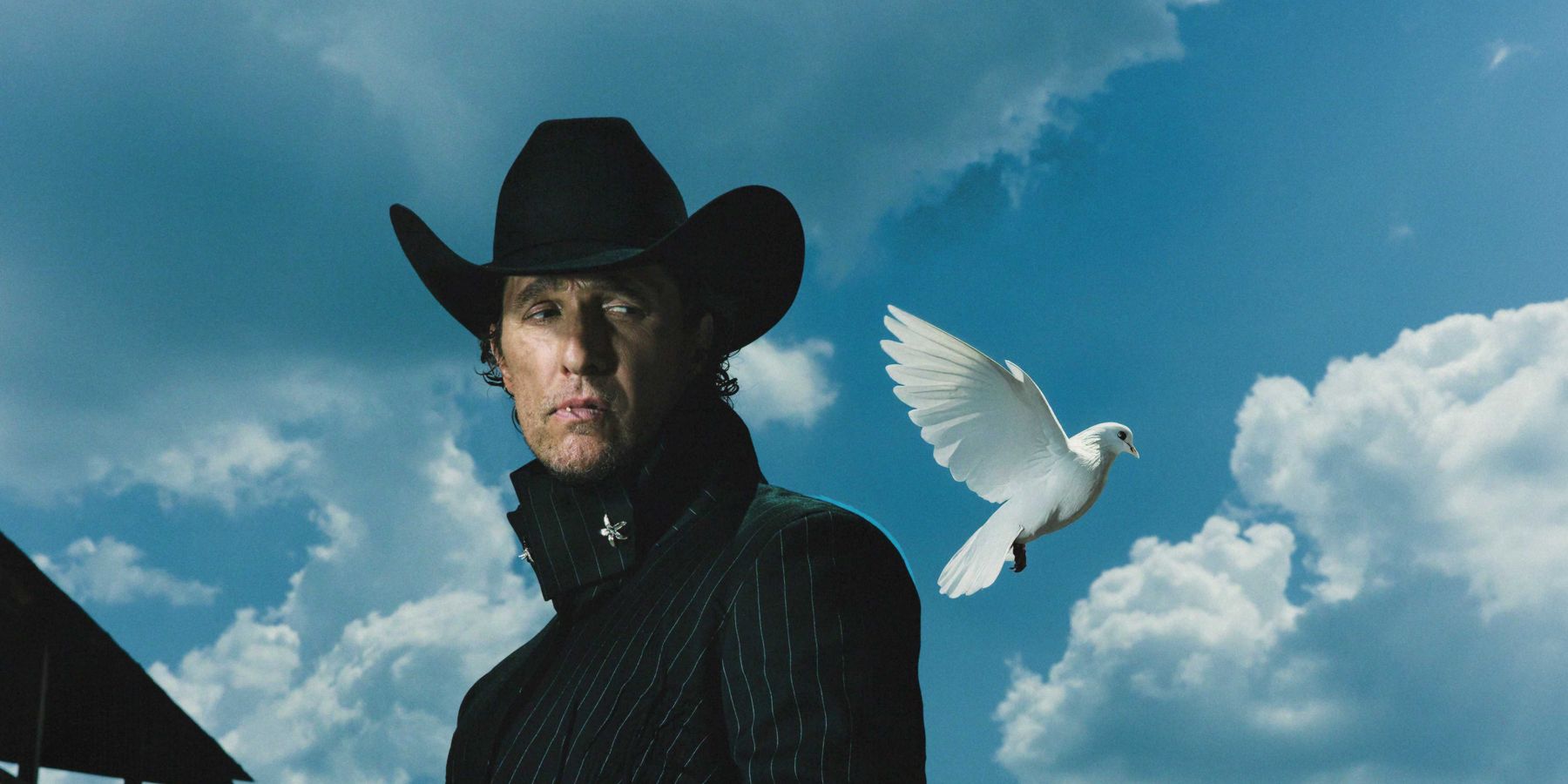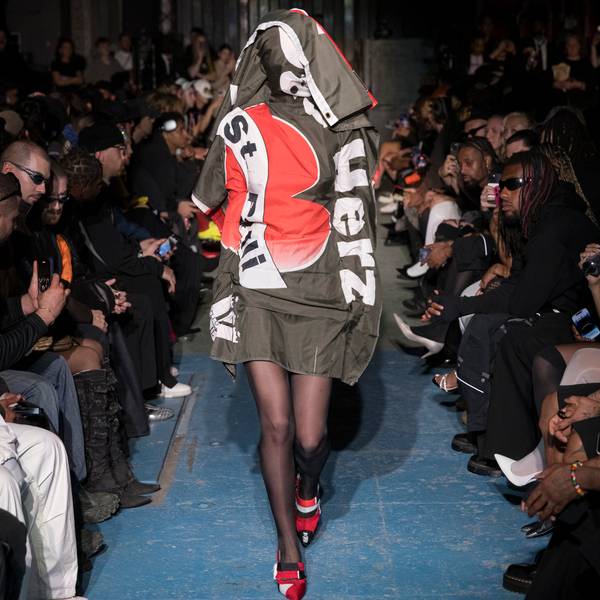
Prototypes Is Challenging Fashion's Status Quo
Story by Robin Burggraaf
Jul 02, 2024
Laura Beham and Callum Pidgeon met while sharing a desk at Vetements during Demna’s era. Fed up with the endless cycles of newness that dominate the current conglomerate-driven fashion landscape, they decided to found their own project, Prototypes, in 2021. Three years later, we spoke to the duo right after their biggest runway show to date in the iconic Paris art space, Le Consulat.
The show, Series07, was attended by Mowalola, Guram Gvasalia, Raga Malak’s Gadir Rajab, and a whole slew of LA-based rappers and influencers. It’s the kind of support and community that any big-budget brand would kill for, and it seems to come naturally to Laura and Callum.
Founded on the principles of upcycling and repurposing, Prototypes carefully crafts distorted silhouettes out of pre-existing materials like soccer jerseys, army uniforms and discarded denim. While this isn’t a novel idea per se, it’s their commitment to craftsmanship that sets the designers apart. Source garments are painstakingly taken apart and reconstructed using intricate techniques. This season’s theme continued their obsession with soccer, its working class roots and the dedicated tribalism found in its community. Loose-fitting Lonsdale joggers get the artisanal treatment, hand-pinned into a perversely coquettish little skirt suit. Graphics are never applied with mechanized screenprints, but instead hand-sprayed on with precision.
Laura and Callum are on a mission to challenge our complicity in over-consumerism. They invite their customers to reflect on the effort and thought that go into making clothes, and encourage everyone to become an active collaborator in the production of their own garments. This translates into "Proto Packs," sewing patterns and manuals based on their designs available through a free download. The unifying element is an ongoing exploration of silhouettes and how to manipulate and interfere with them. "Everyone’s aesthetic needs an attitude. Take constriction, for example: How can it be used, seen and felt? For oppression, kink, or comfort?"
Below, PAPER caught up with Beham and Pidgeon about their biggest show to date, DIY culture and challenging the industry.
Hi Callum and Laura! First thing's first: Can you tell us about Prototypes and the vision behind the brand?
Prototypes is a fashion brand focused on the principles of upcycling and repurposing. The brand was set up in 2021 in Zurich, Switzerland. In conceptually interwoven projects, we facilitate a sustainable attitude towards making and wearing fashion. Our core offerings are our collections. We recently presented Series07 during fashion week in Paris, which made use of deadstock fabric and garments to create new pieces of clothing. Our Proto Packs equip those with the will and desire to do it themselves with a manual and sewing patterns to do so. A Proto Pack allows to replicate a style from our collections and comes in different difficulty levels.
From previous experiences, we had issues with the way brands produce garments from new materials without really considering the ecological and ethical consequences. The fashion industry is one of the most polluting industries globally! We prefer an approach that’s regenerating pre-existing material such as deadstock, decommissioned uniforms and vintage garments. Basically, everything that’s available in abundance is interesting to us. Once sourced, we cut up and decode these items to into wearable and “new” garments. Duchamp’s concept of the ready-made is important to us — to clearly point to a garment's origin. We want people to make an emotional connection to the origins of a piece in the first five seconds they see it.
You just showed your seventh collection in Paris. Can you walk us through the seasonal inspiration?
After our last collection, which looked at football’s grassroots origins, we wanted to continue our exploration of the sport’s culture, its characteristic codes and actors. Series06 focused on the Sunday league and on figures like the referee, the groundskeeper, the youth and others. This time around for Series07, we wanted to further highlight the tribalism embedded in football’s fan communities — the devotion that comes with the association to a club culminating in a shared aesthetic, less bothered with the individual than with a strength in numbers. In the collection, this approach manifests in various ways: masked faces indicate a wish for anonymity, football jerseys represent the commitment to shared values, ditto the motto: arte et labore. By skill and labour.
This was your biggest show to date. Can you describe the atmosphere?
It was great for us to see how much attention our project gained over the last three years, with this last show being the pinnacle. Setting up a show in Paris, during fashion week, is quite the challenging task. There is a lot of competition. People don’t have much time. There is always another thing happening somewhere in town. Considering all this, it was reassuring to realize that many people actually made time to be there for our show, which made for an exciting atmosphere.
You elevate DIY practices to an artisanal level, can you tell us a bit more about what DIY culture means to you?
DIY is our culture, That’s how we always worked, and that’s also how Prototypes came about in the first place. We felt like there was a need for a brand like ours, so we went ahead and did it. This hands-on mentality, from cutting up clothes to stenciling prints instead of screen-printing them in a standardized manner, is part of our DNA. We try to spend as little time in front of a screen as possible.
Last year we spoke about the wish to challenge the industry by employing radically new strategies, rather than changing the system from within. How does this translate into the brand’s practices?
To pick up on the answer to the question before, DIY, to us, also means to educate the consumer to become a producer and supplier, which is as sustainable as it could get and radically challenges the way people think about fashion. Everyone has old garments in their wardrobe that can be given a new purpose. It’s important to understand the process that goes into making clothes. It takes time and thinking.
Clothes should not be disposed of or disregarded as quickly as we do in today’s society. We want to ultimately elongate the lifecycle of any given garment, without being bothered by a short-lived and capitalist logic of trends. Strategies of upcycling and repurposing are as important to us as accessibility, so we’ll continue pushing both. The DIY guides and patterns from certain styles in our collections will be available as free downloads on our website soon.
You seem to get a lot of support from the industry. The presence of fellow creatives such as Mowalola, Guram Gvasalia, Gadir Rajab and Ye in your orbit prove that. Can you speak on this more?
Even though Prototypes is still a relatively young brand, we’ve been working in fashion for awhile already. Some people from the industry we know from previous engagements. Others like Ye became part of our orbit more recently. We welcome the exchange and are happy that people are paying attention to what we are doing, which seems to mean we are on to something.
You recently relocated to Paris. What motivated this?
Paris is the capital of fashion for a reason. Many of our collaborators and partners are based here, or come through the city on a regular basis. Organizing a show in Paris, which we now did for the third time and will do again at least once a year, requires us to spend a lot of time in the city anyways, which is why it makes sense for us to have a base here too. With every season, Prototypes is growing, and by now, we feel like we’ve earned our seat at Paris’ table.
What is next for Prototypes?
Watching the [European Football Championship].
Photography: Valerio Mezzanotti
Related Articles Around the Web
MORE ON PAPER
ICONOS: Pepe Aguilar, El Oficio del Tiempo, la Voz del Silencio y el Peso del Legado
Español
Jan 19, 2026
Entertainment
Cynthia Erivo in Full Bloom
Photography by David LaChapelle / Story by Joan Summers / Styling by Jason Bolden / Makeup by Joanna Simkim / Nails by Shea Osei
Photography by David LaChapelle / Story by Joan Summers / Styling by Jason Bolden / Makeup by Joanna Simkim / Nails by Shea Osei
01 December
Entertainment
Rami Malek Is Certifiably Unserious
Story by Joan Summers / Photography by Adam Powell
Story by Joan Summers / Photography by Adam Powell
14 November
Music
Janelle Monáe, HalloQueen
Story by Ivan Guzman / Photography by Pol Kurucz/ Styling by Alexandra Mandelkorn/ Hair by Nikki Nelms/ Makeup by Sasha Glasser/ Nails by Juan Alvear/ Set design by Krystall Schott
Story by Ivan Guzman / Photography by Pol Kurucz/ Styling by Alexandra Mandelkorn/ Hair by Nikki Nelms/ Makeup by Sasha Glasser/ Nails by Juan Alvear/ Set design by Krystall Schott
27 October
Music
You Don’t Move Cardi B
Story by Erica Campbell / Photography by Jora Frantzis / Styling by Kollin Carter/ Hair by Tokyo Stylez/ Makeup by Erika LaPearl/ Nails by Coca Nguyen/ Set design by Allegra Peyton
Story by Erica Campbell / Photography by Jora Frantzis / Styling by Kollin Carter/ Hair by Tokyo Stylez/ Makeup by Erika LaPearl/ Nails by Coca Nguyen/ Set design by Allegra Peyton
14 October
Entertainment
Matthew McConaughey Found His Rhythm
Story by Joan Summers / Photography by Greg Swales / Styling by Angelina Cantu / Grooming by Kara Yoshimoto Bua
Story by Joan Summers / Photography by Greg Swales / Styling by Angelina Cantu / Grooming by Kara Yoshimoto Bua
30 September




